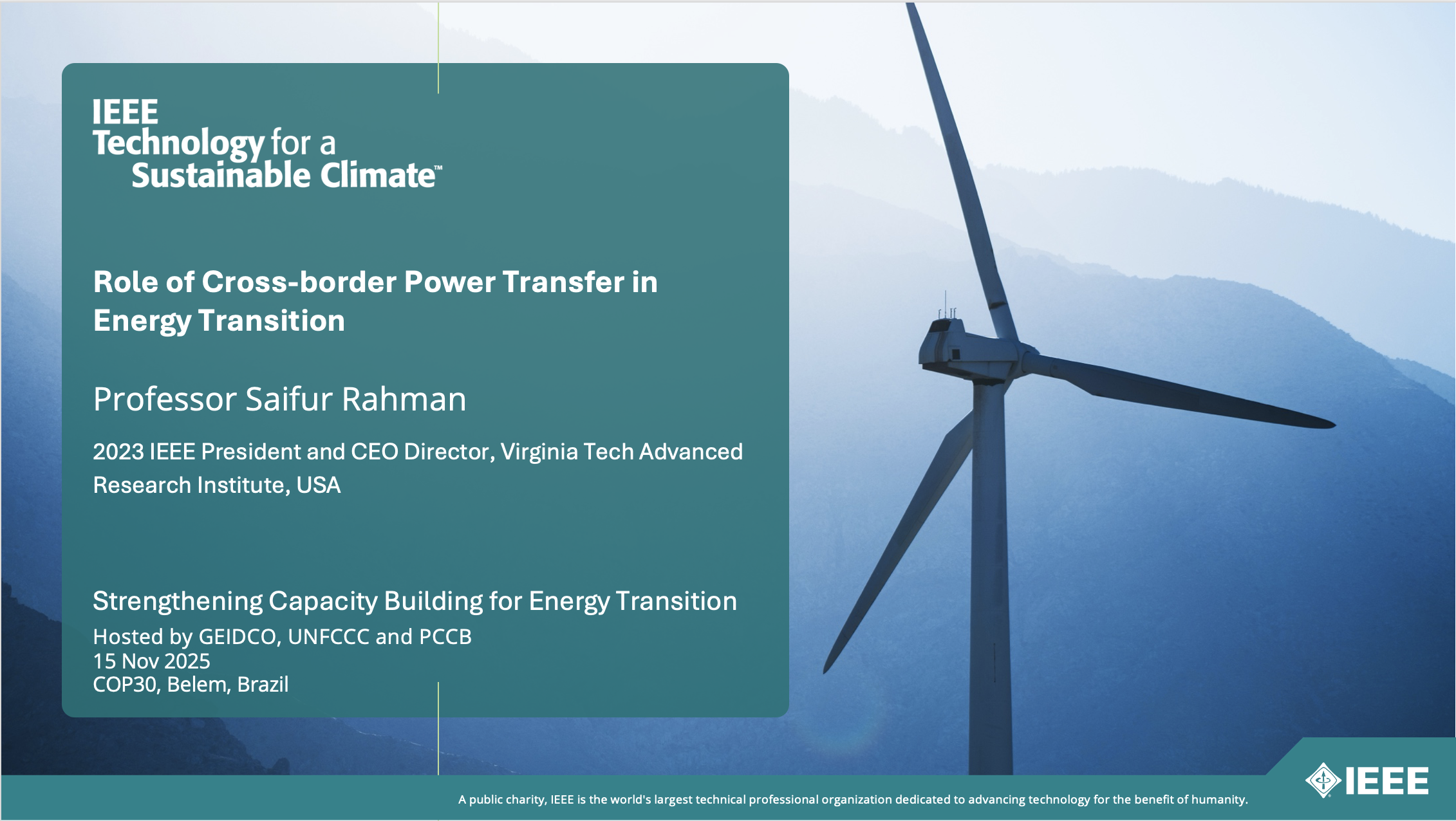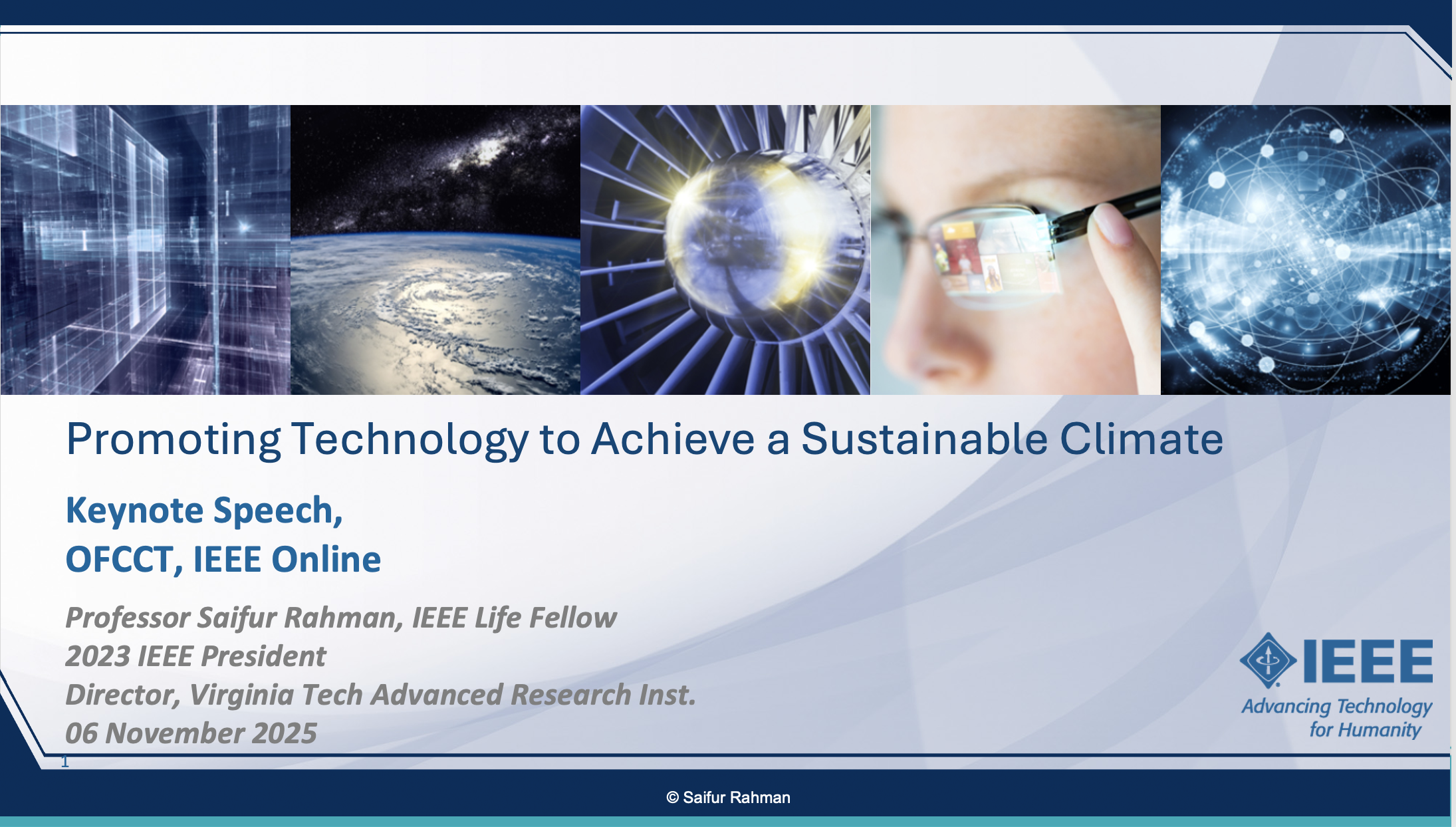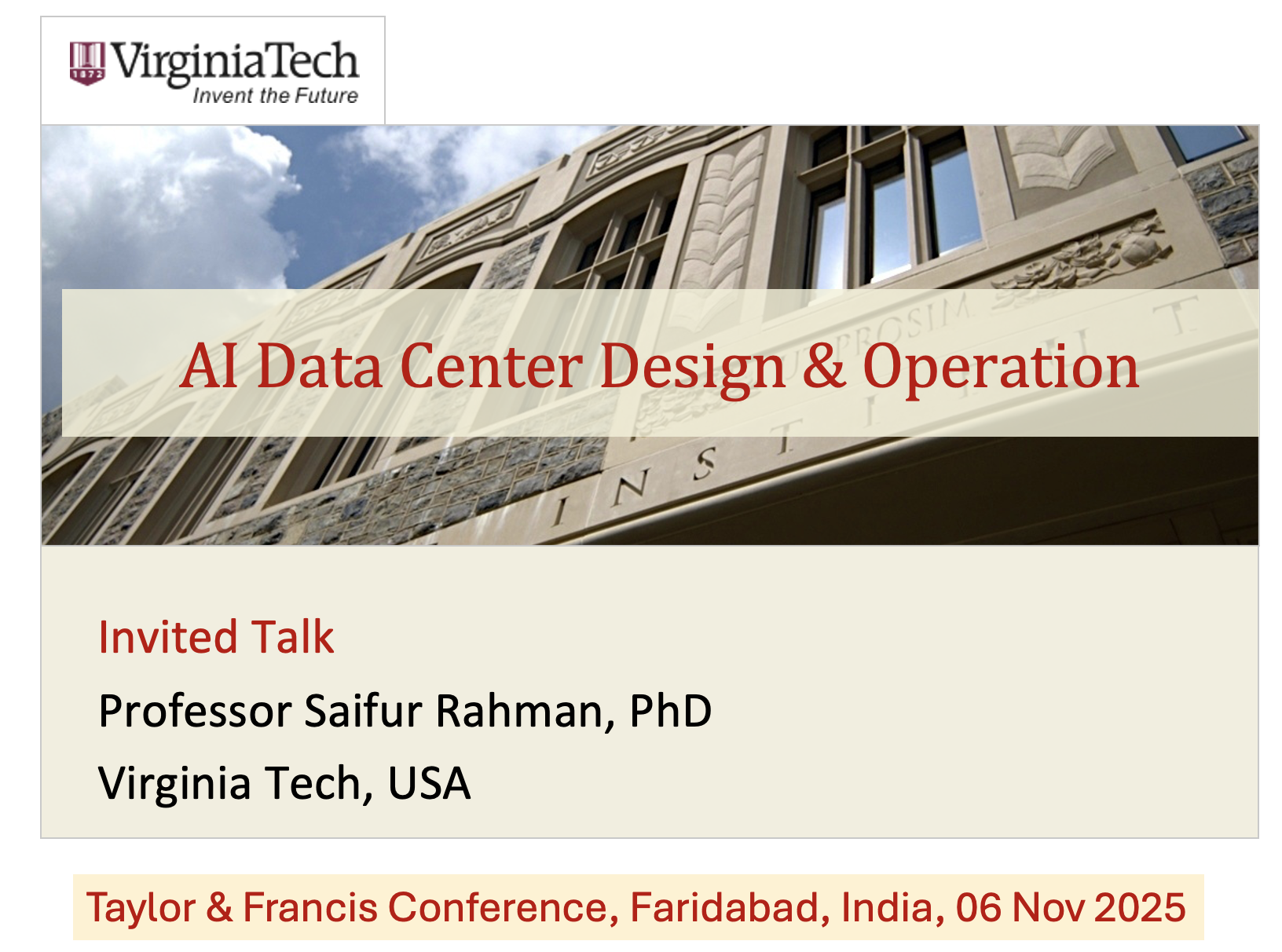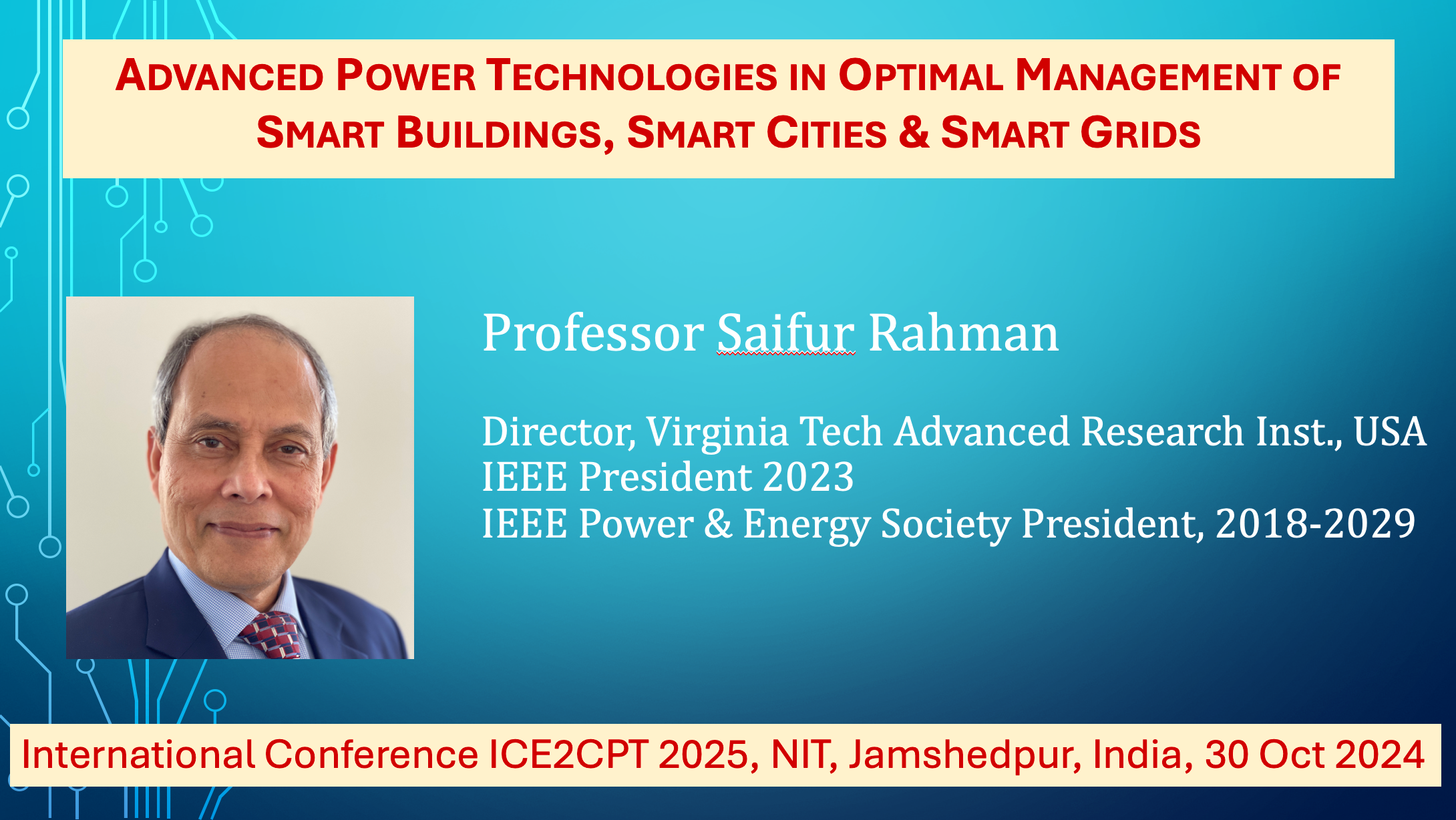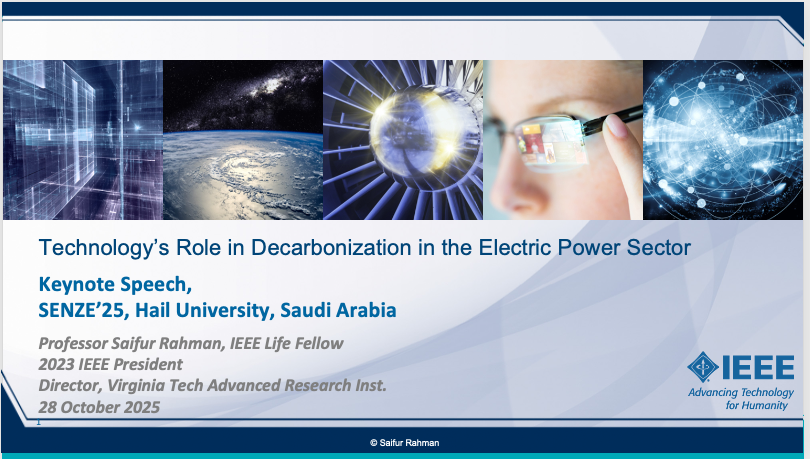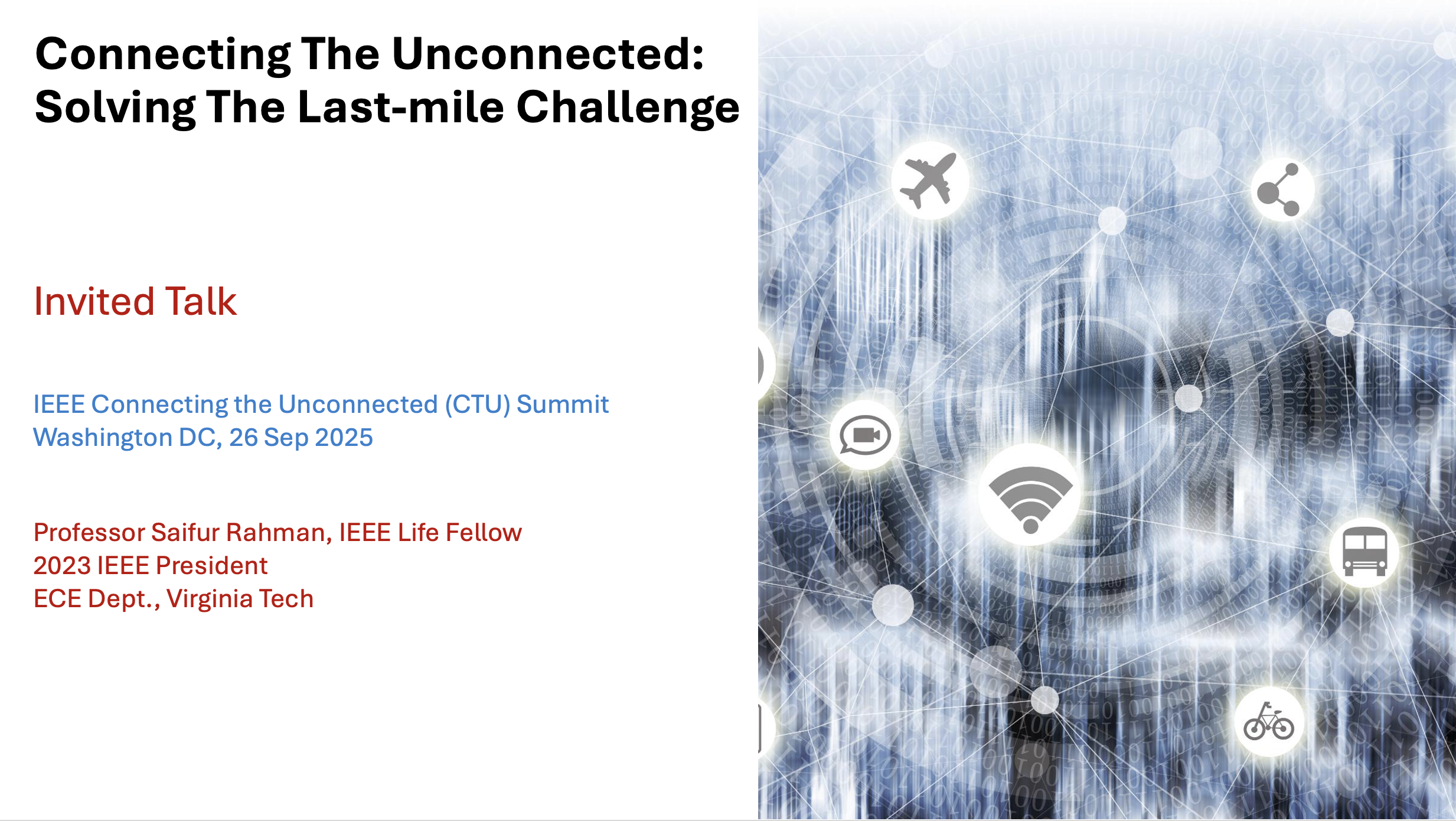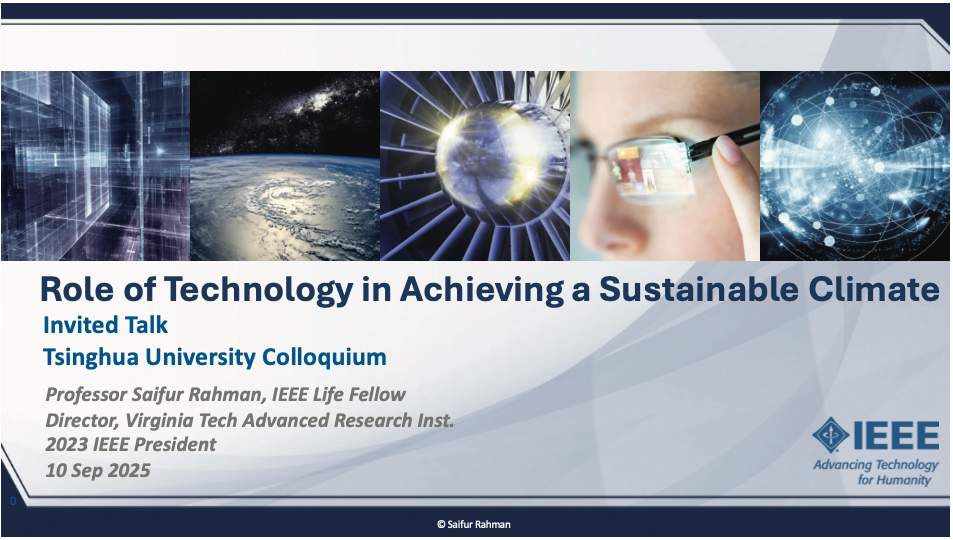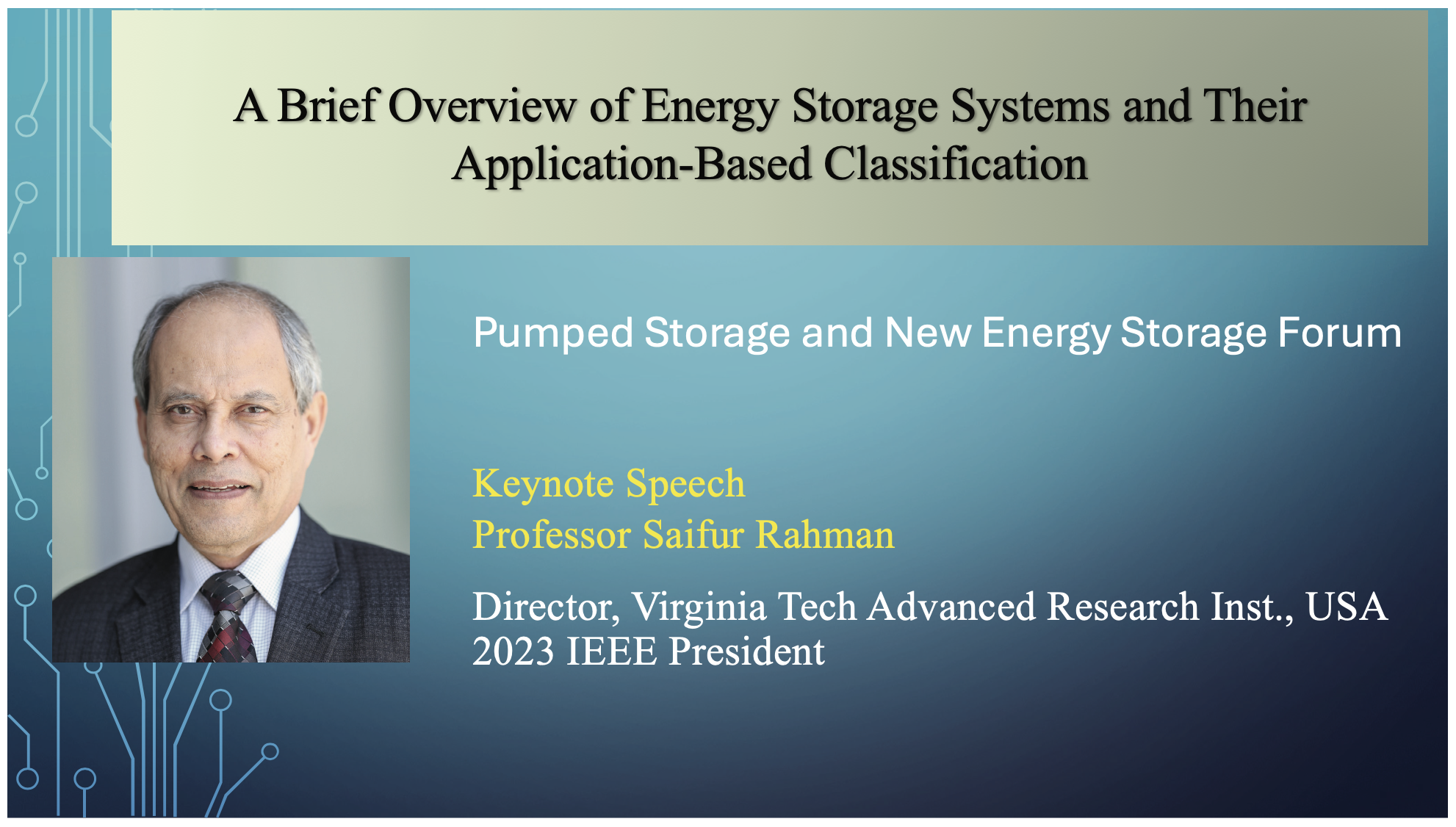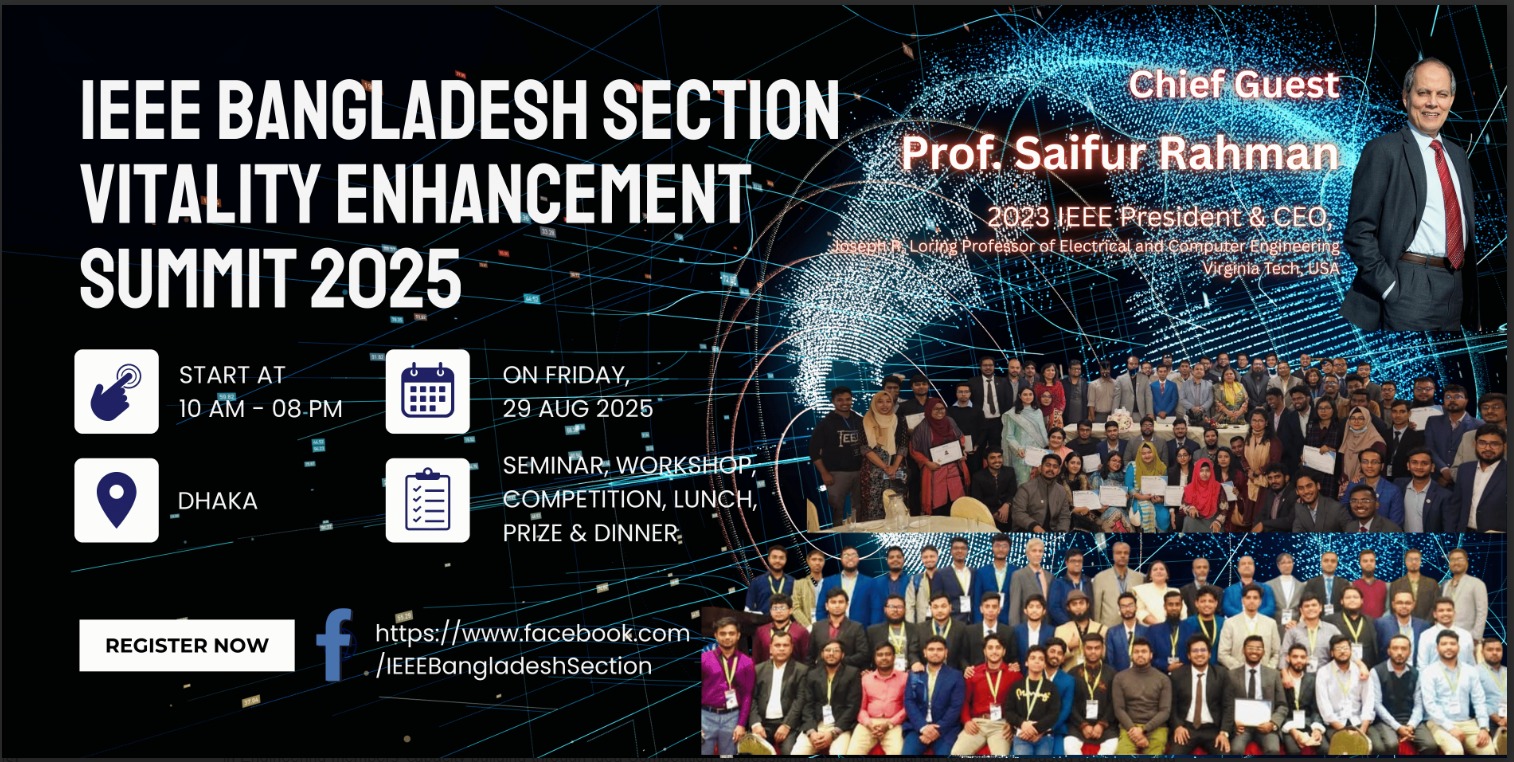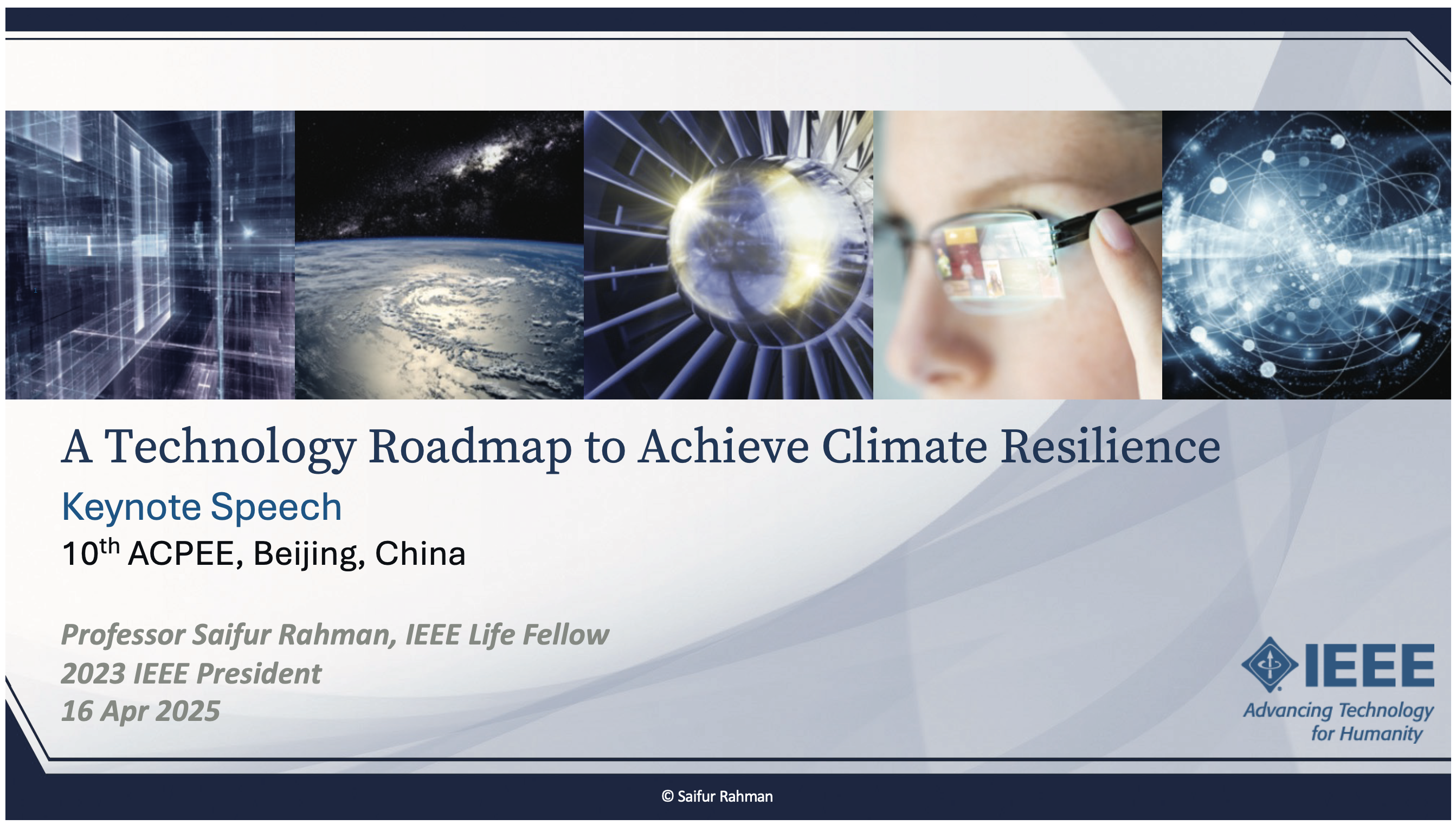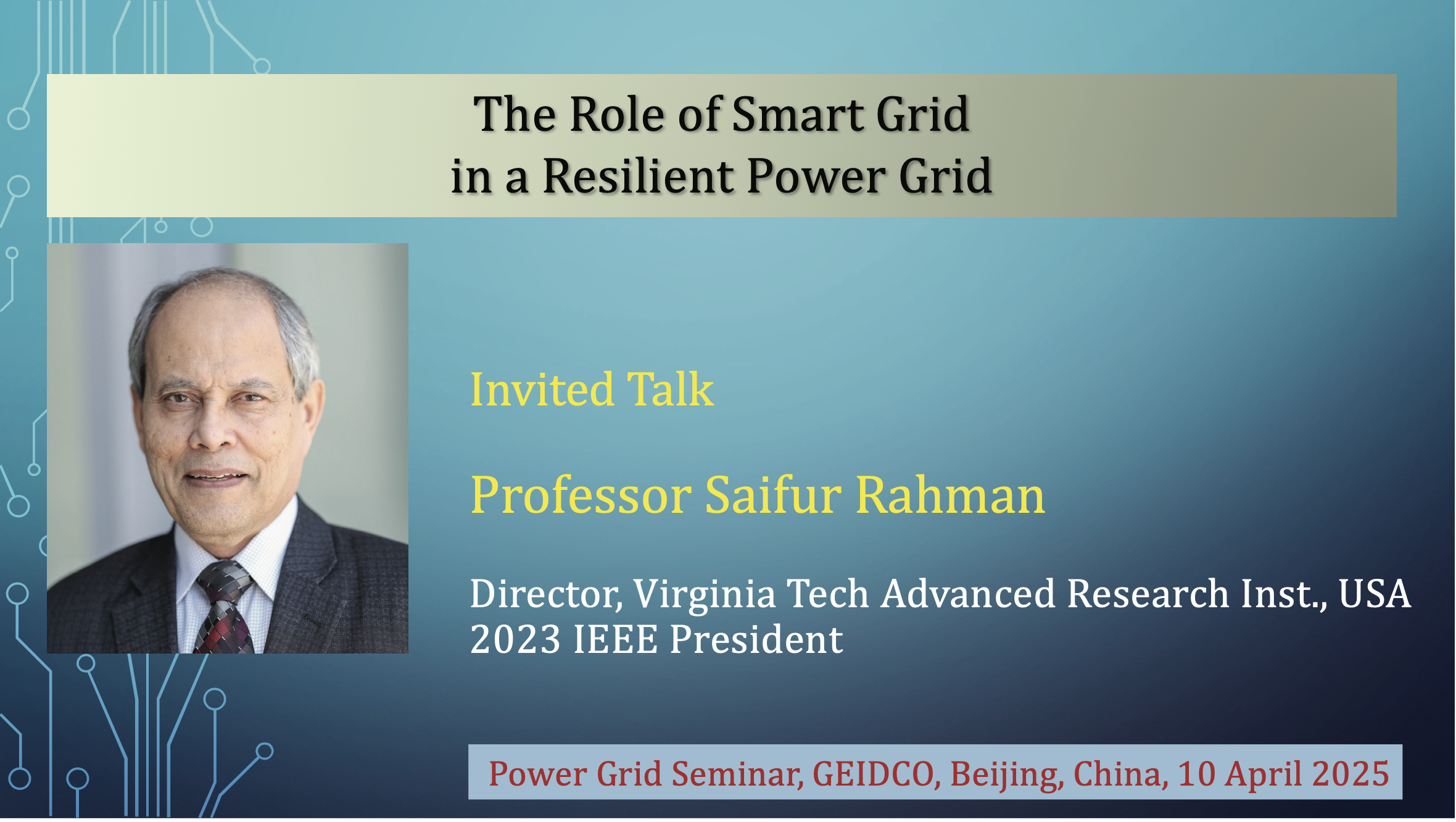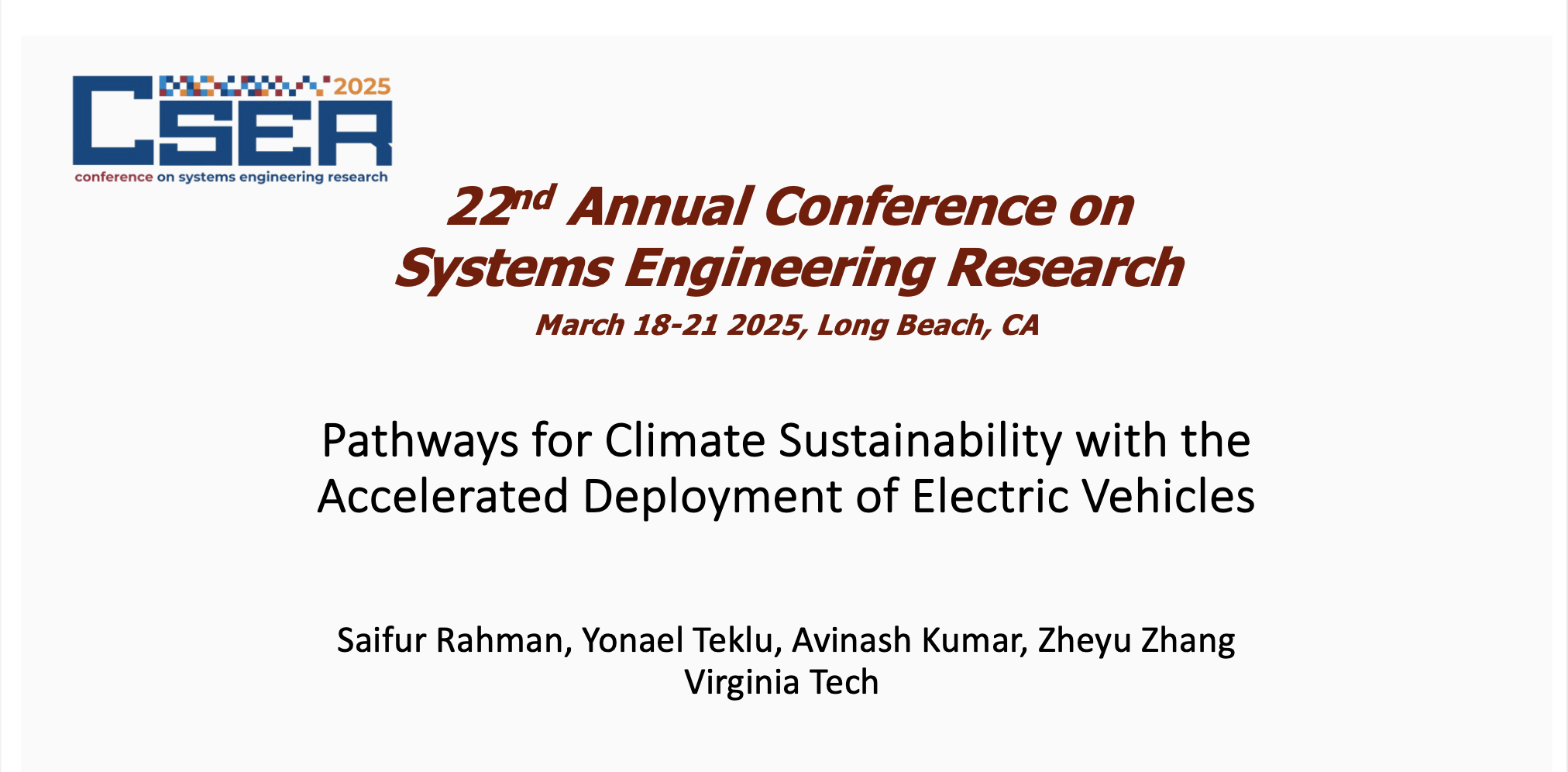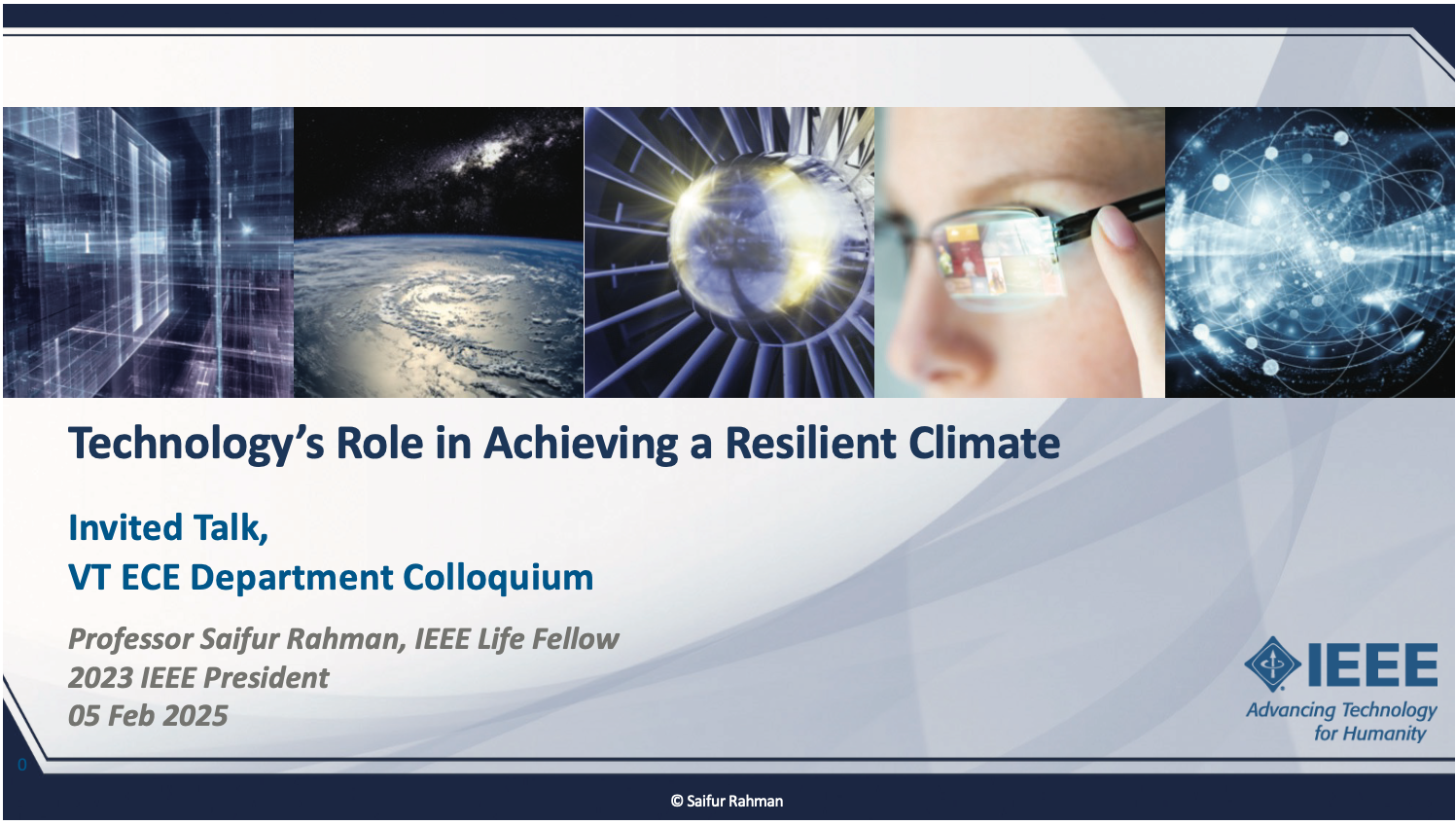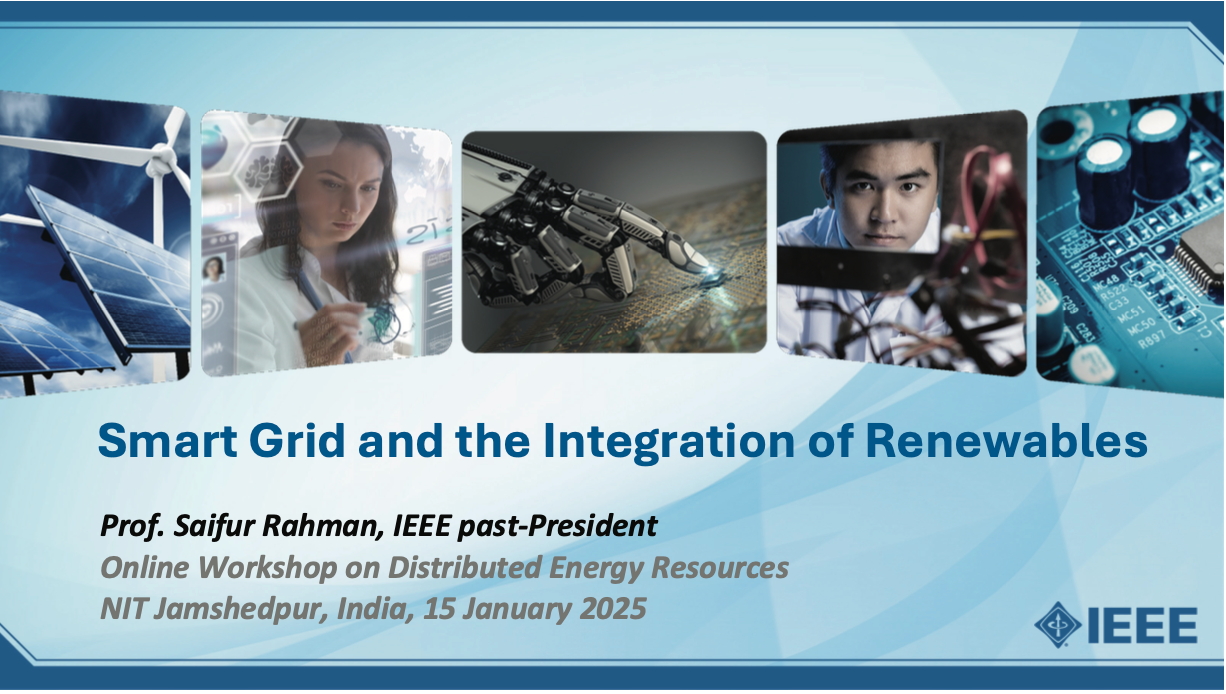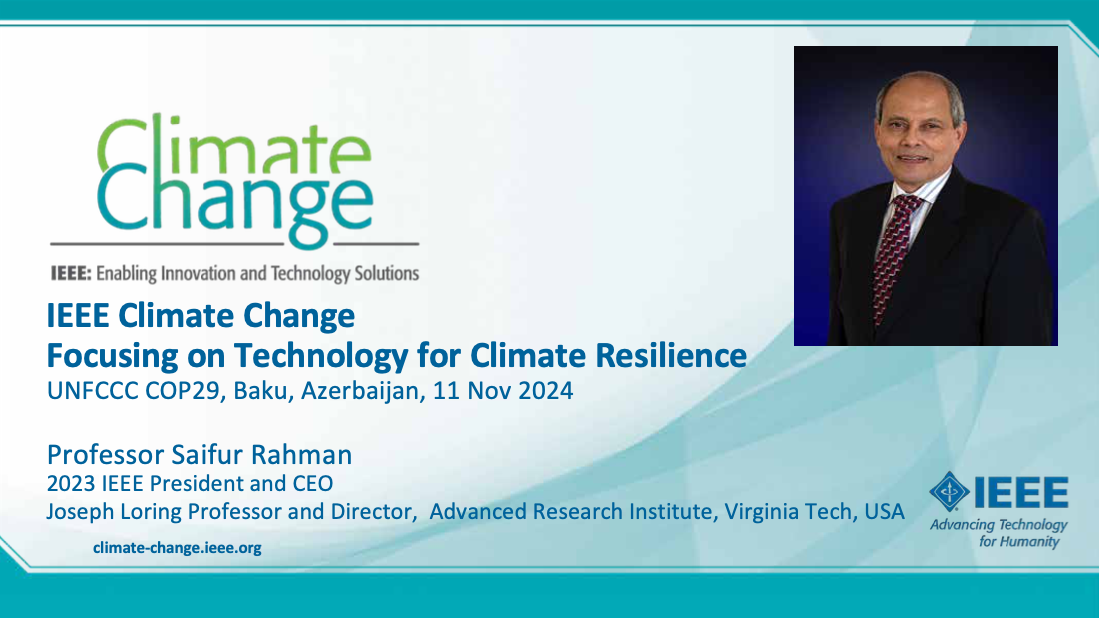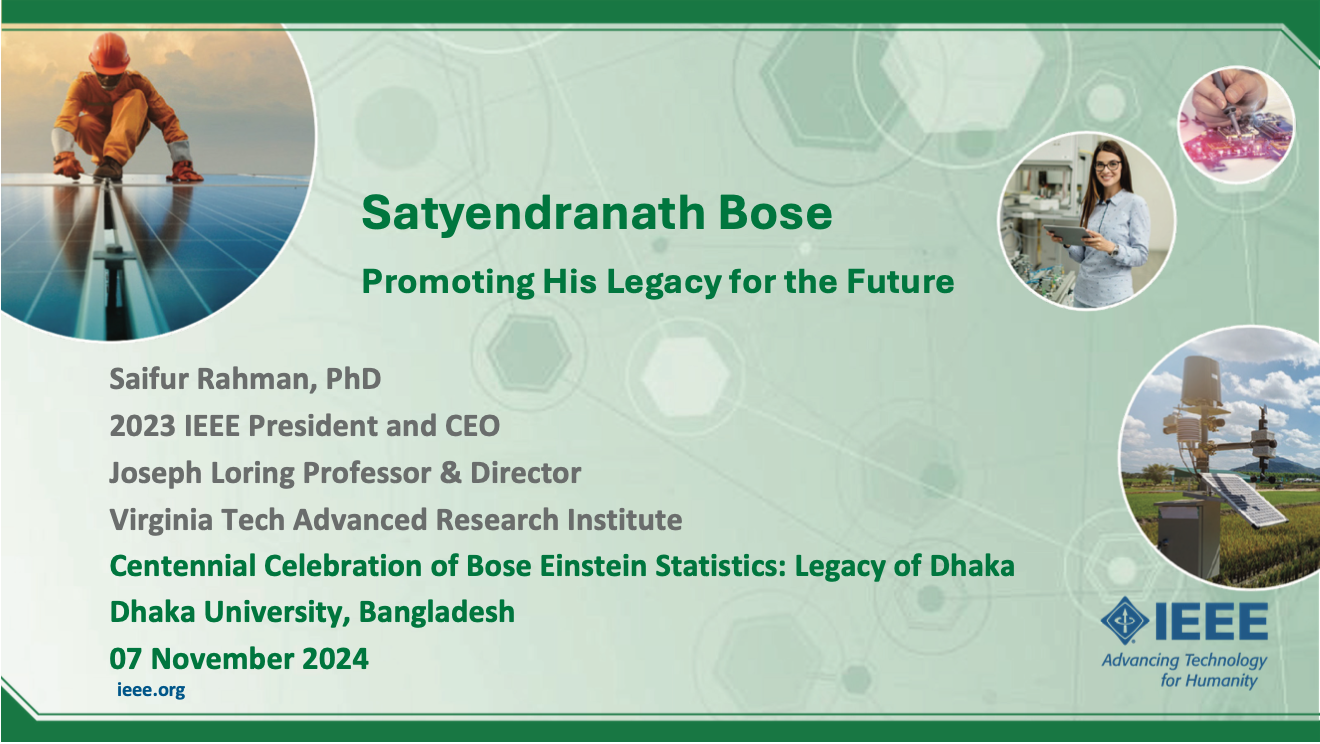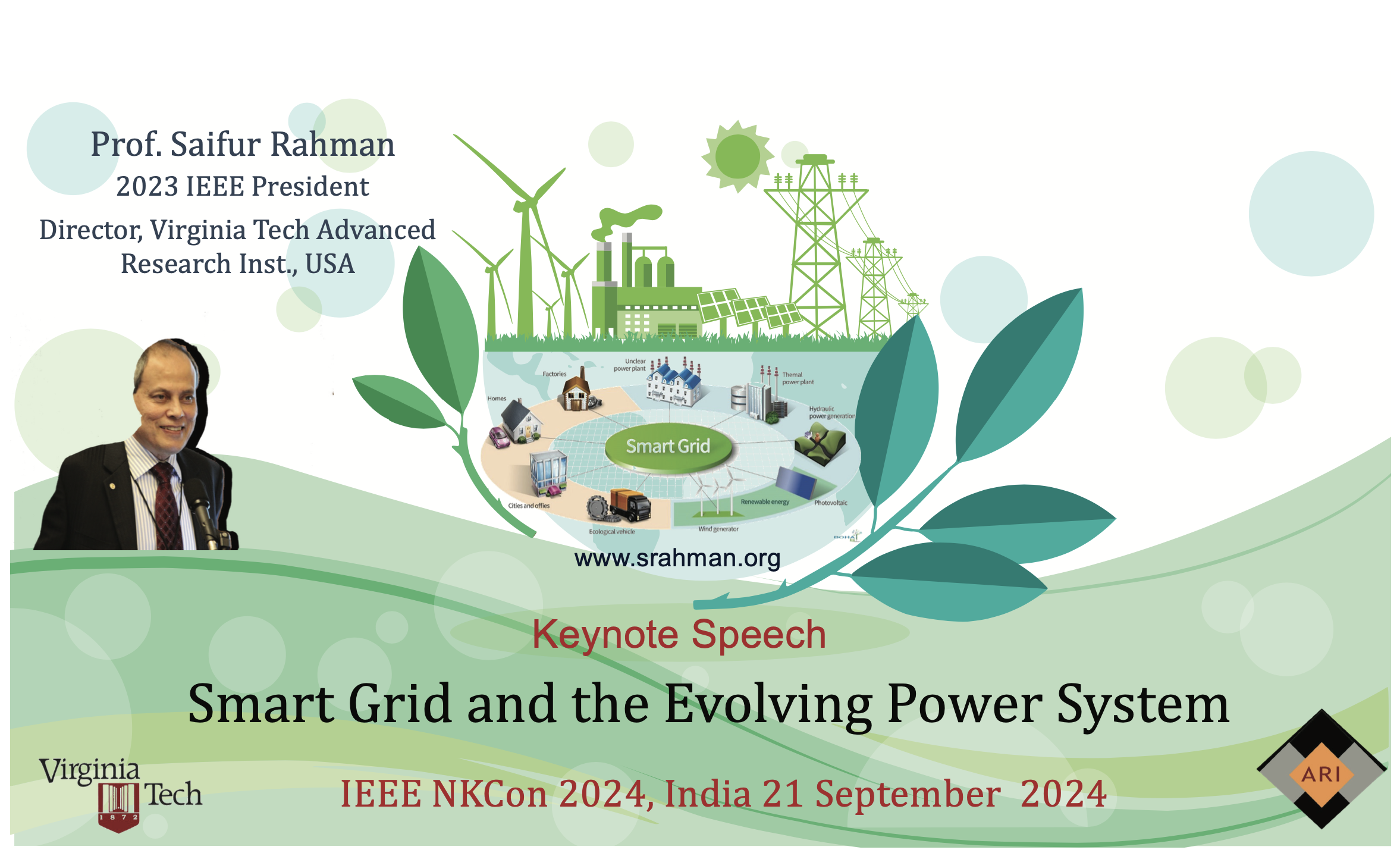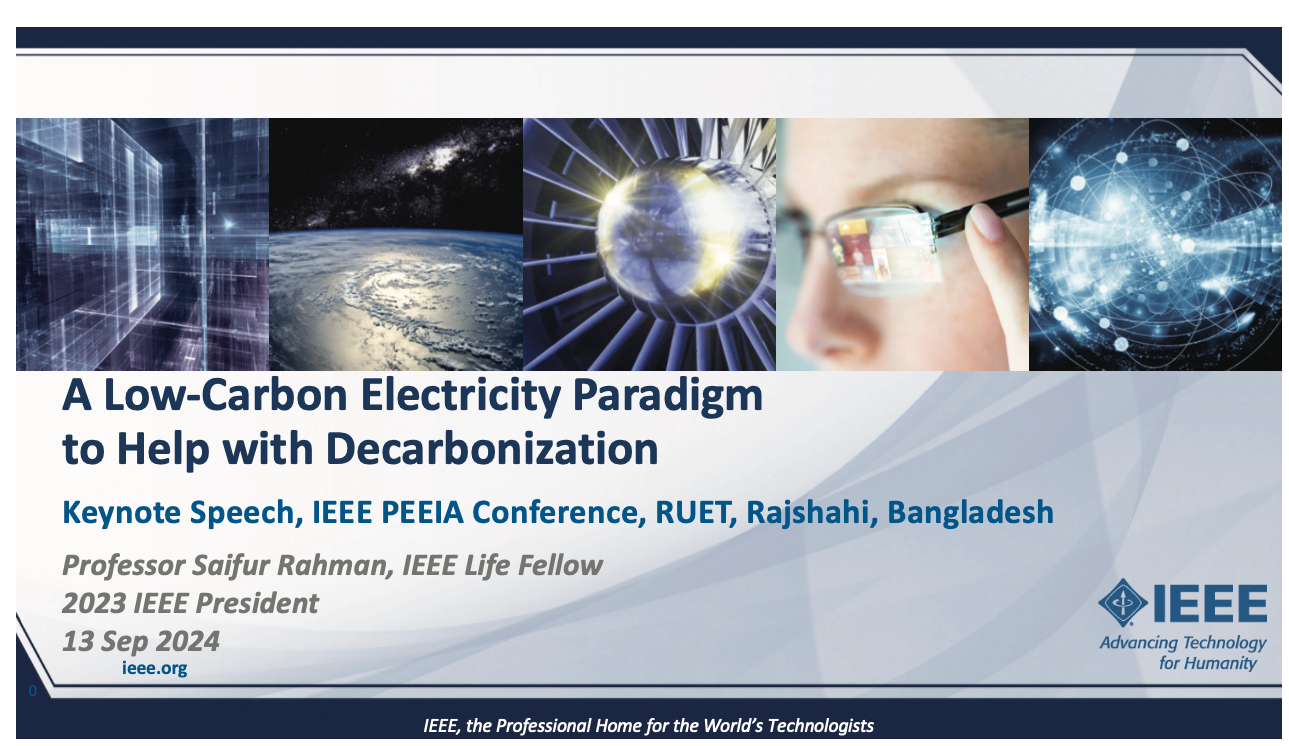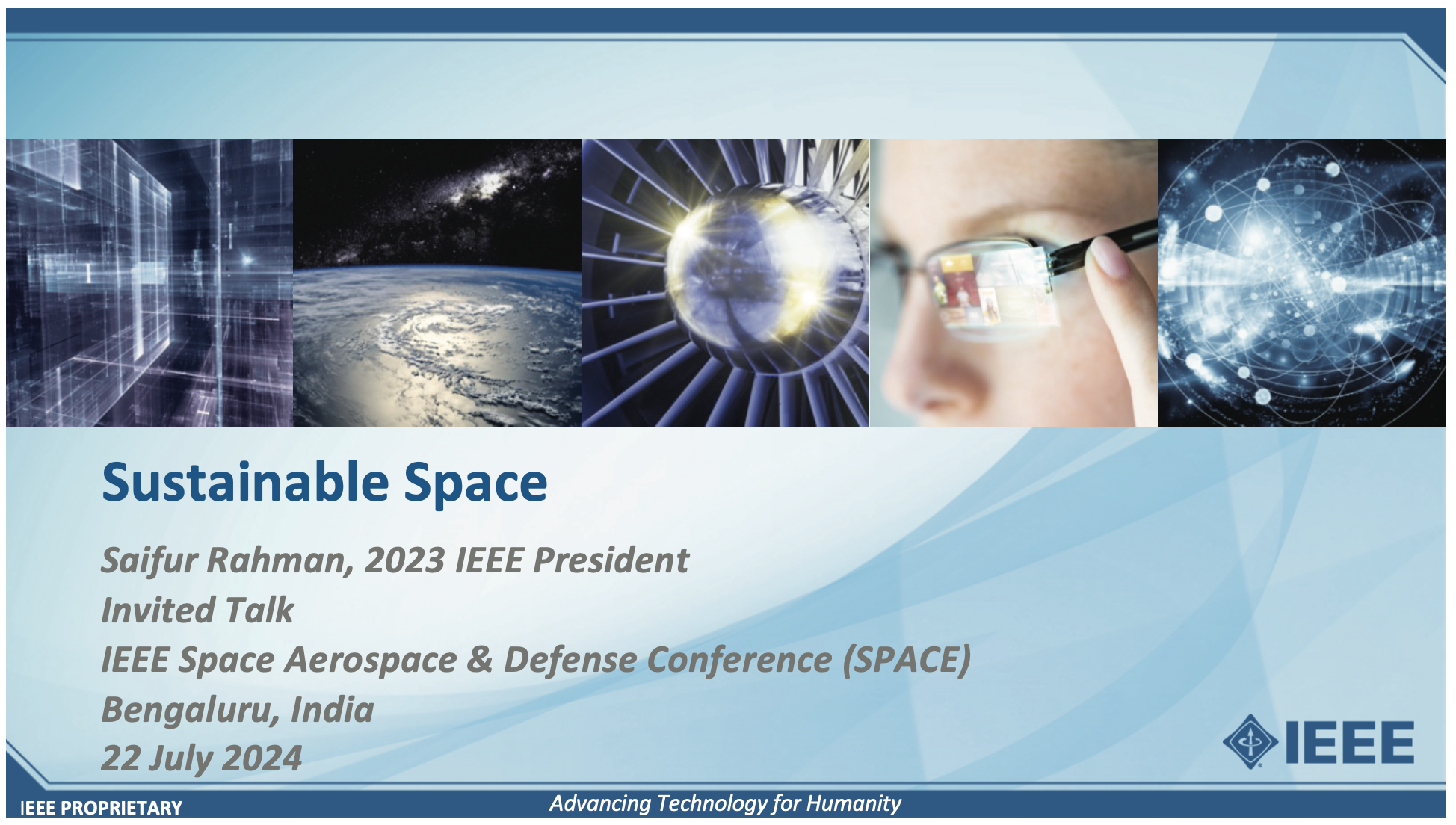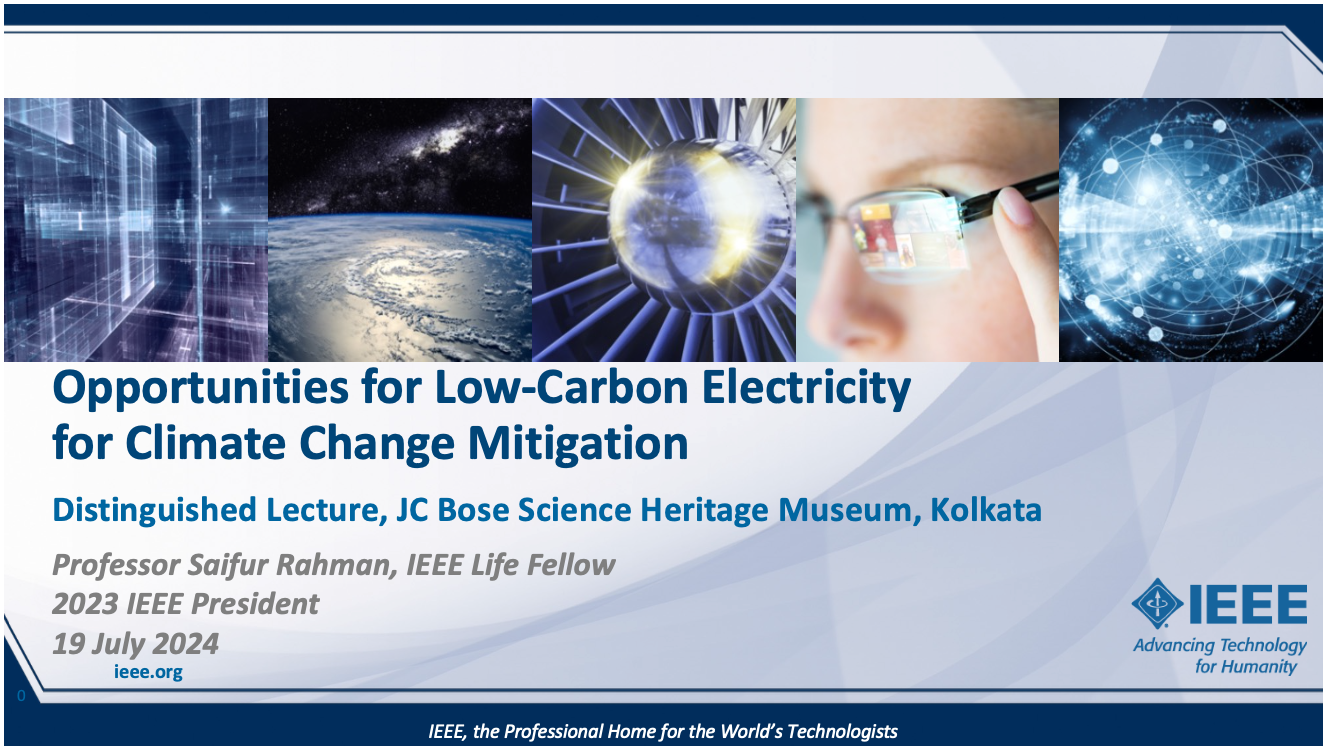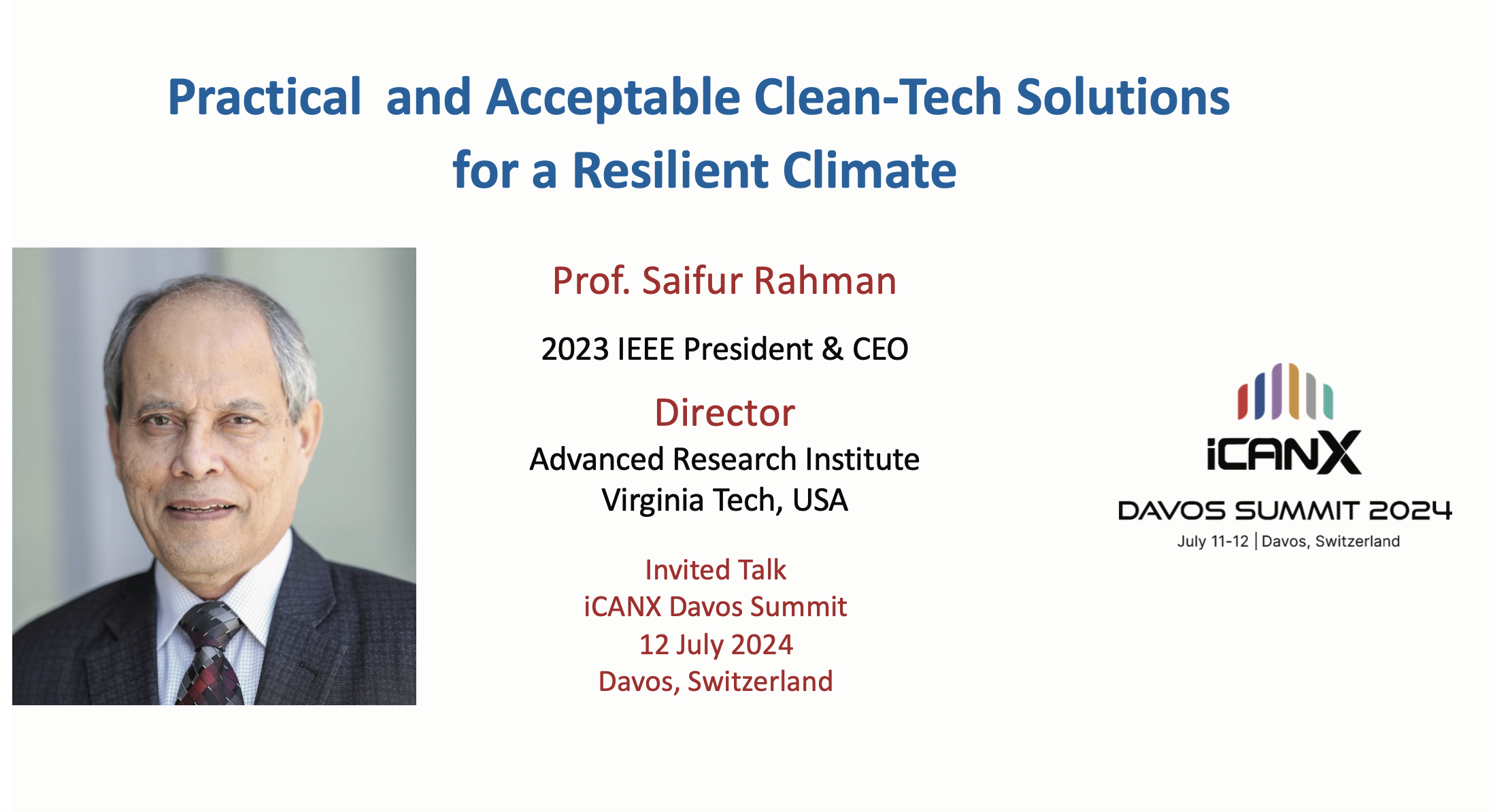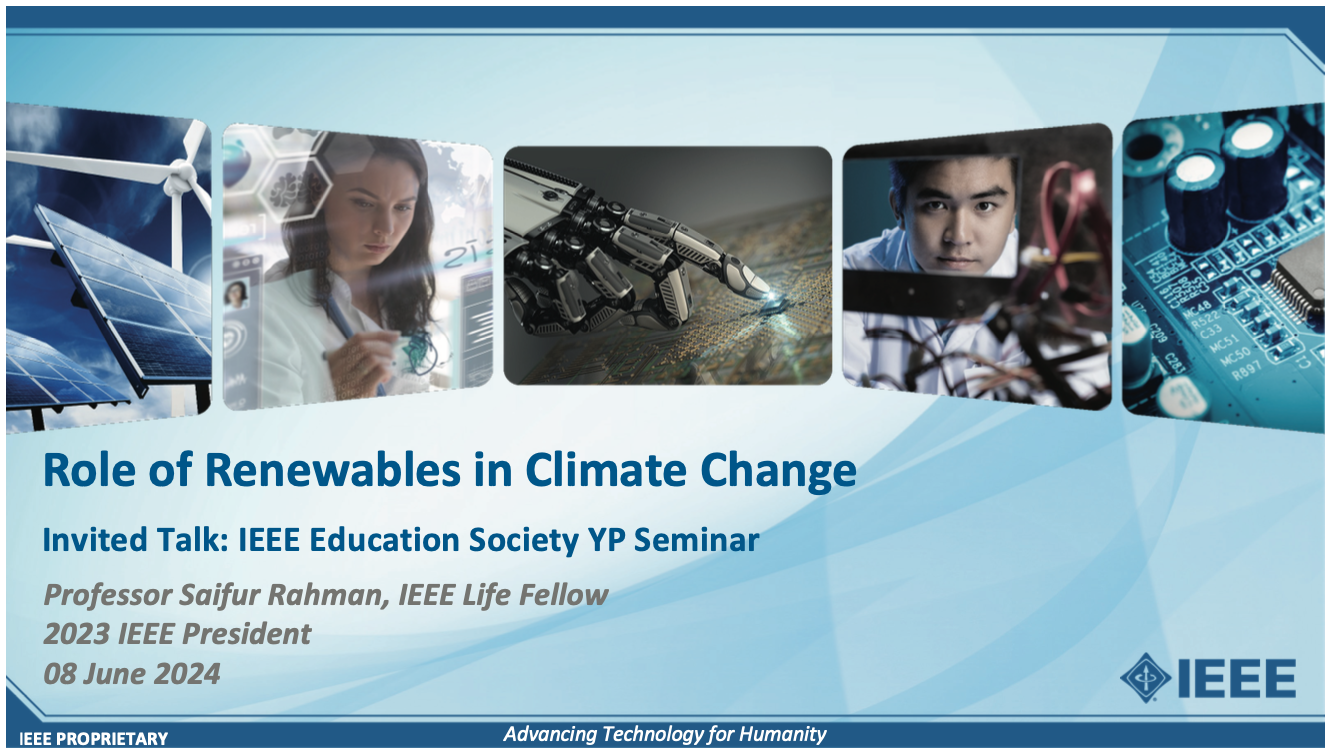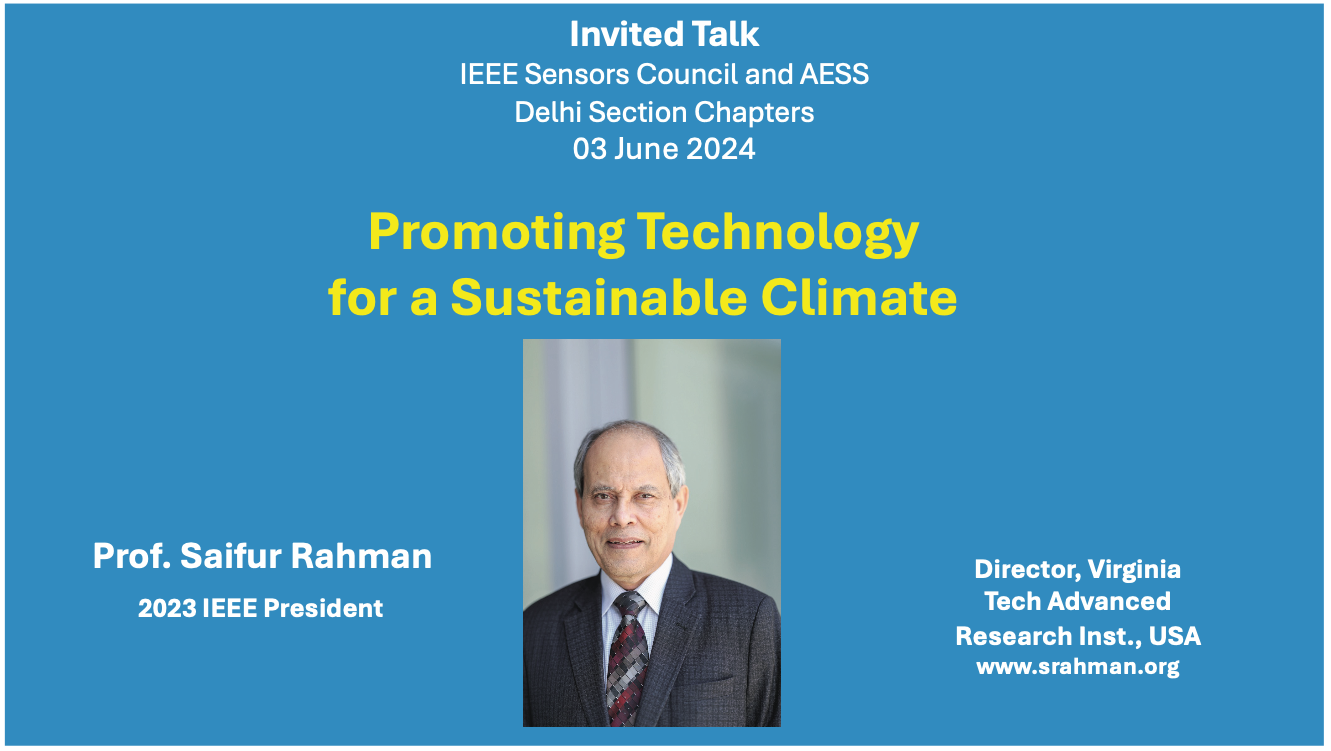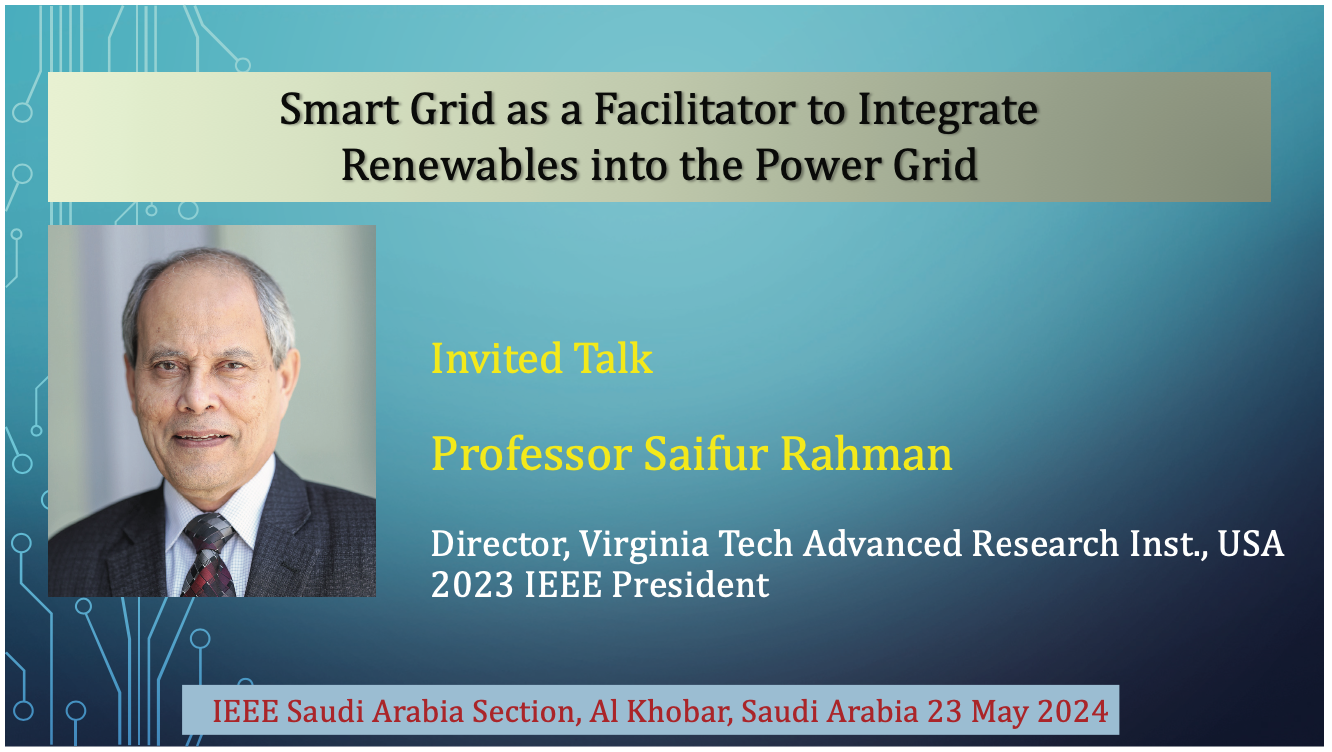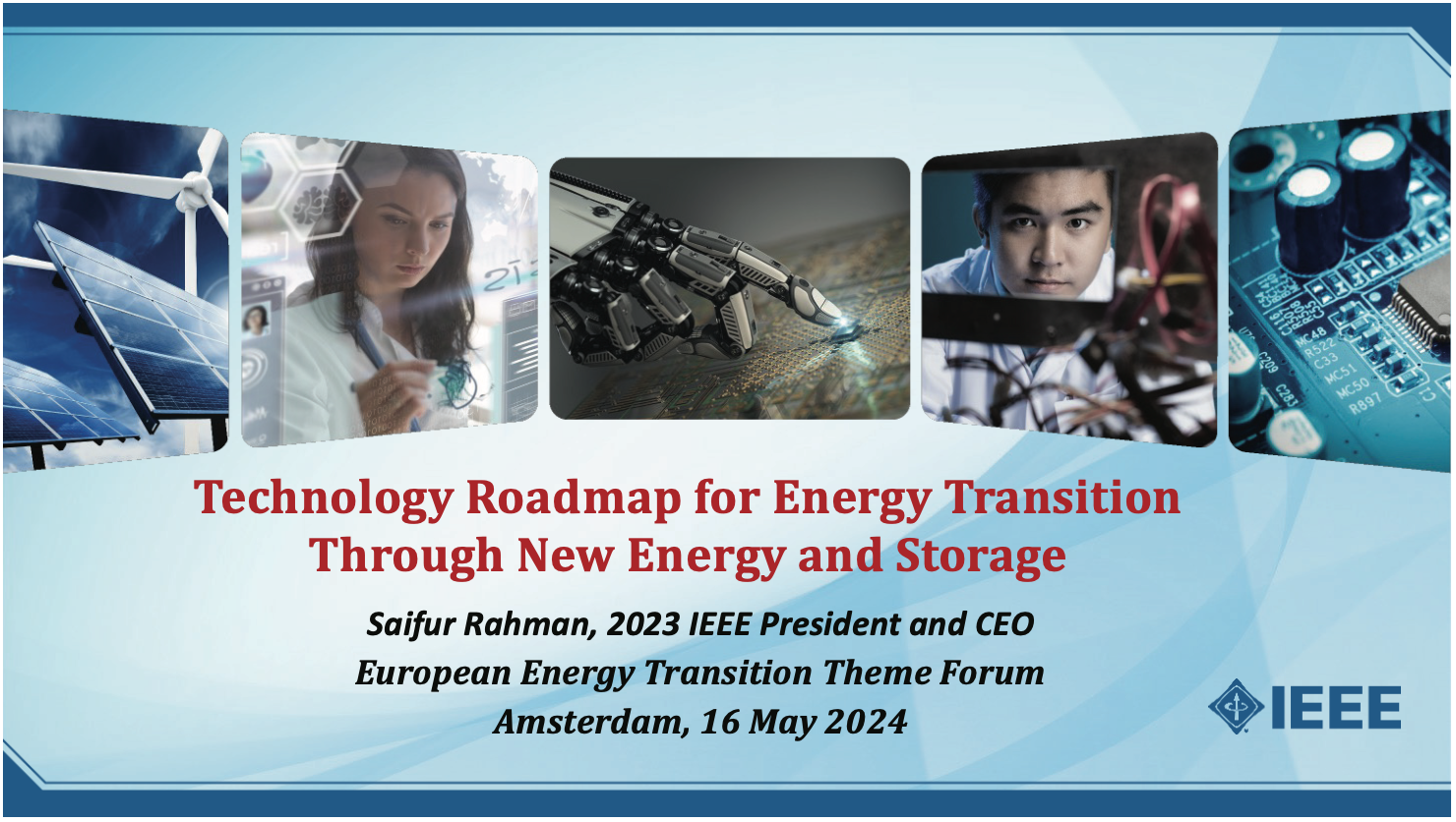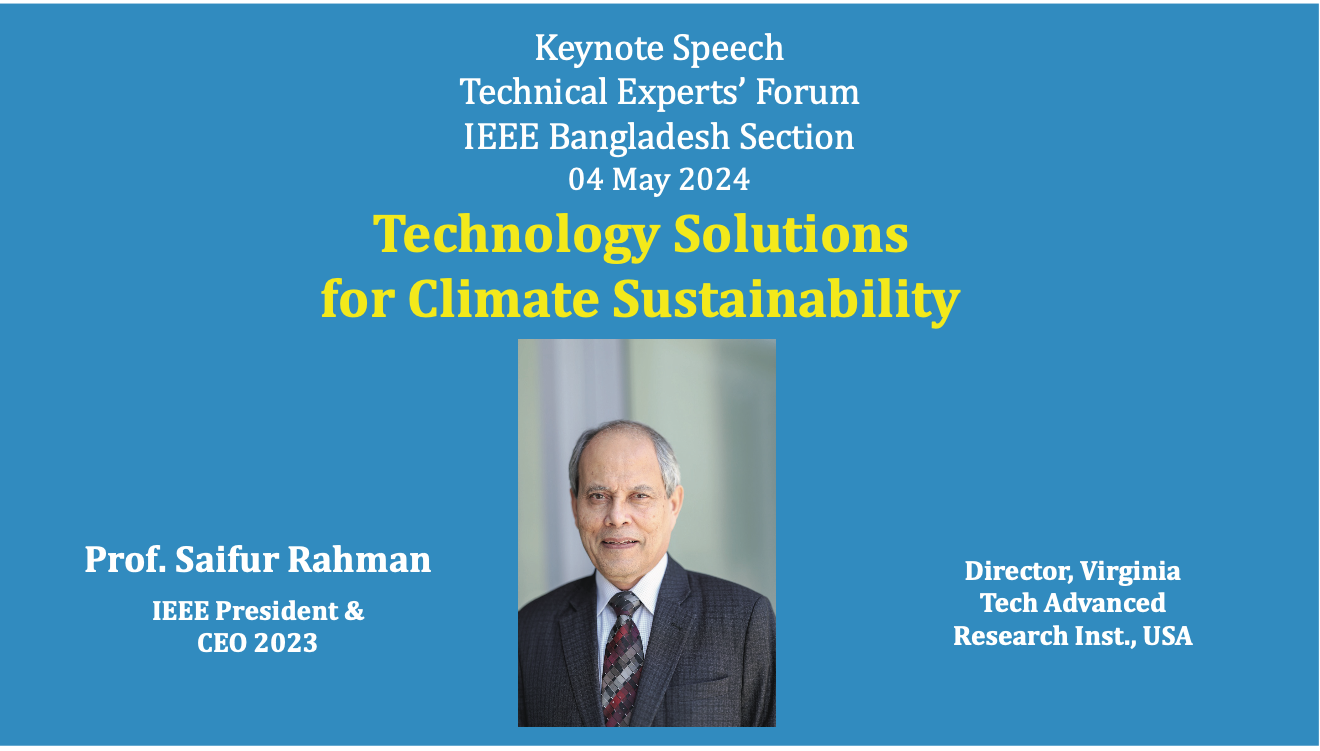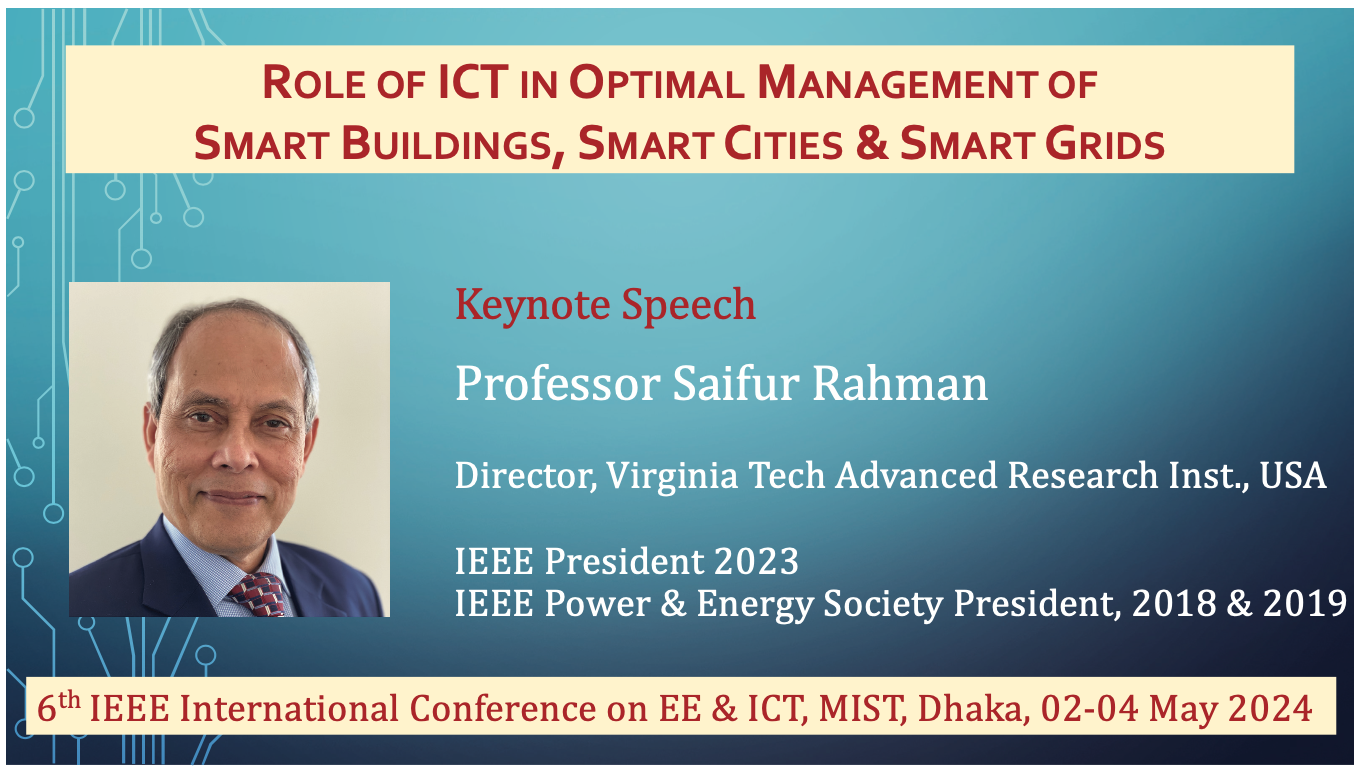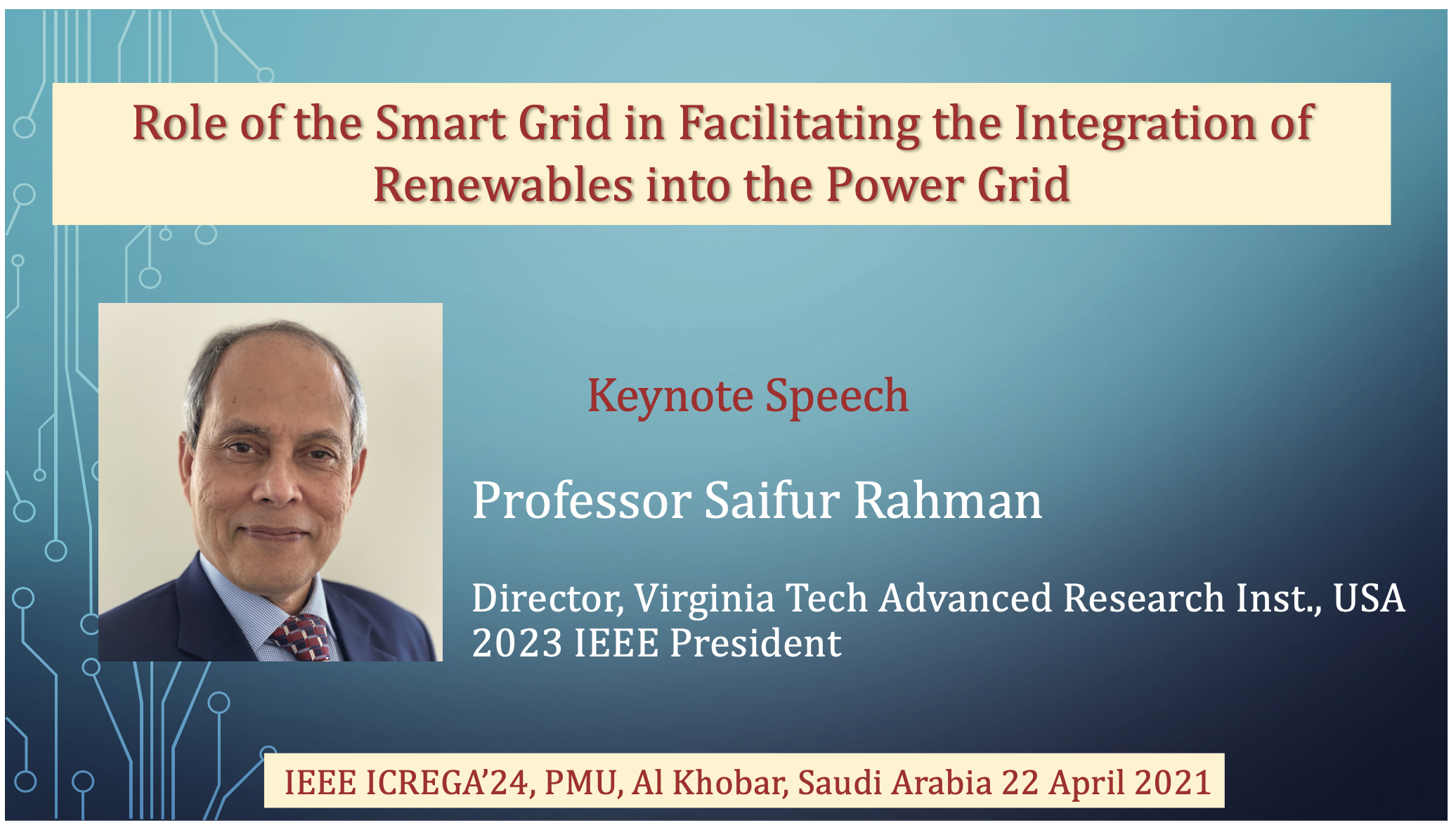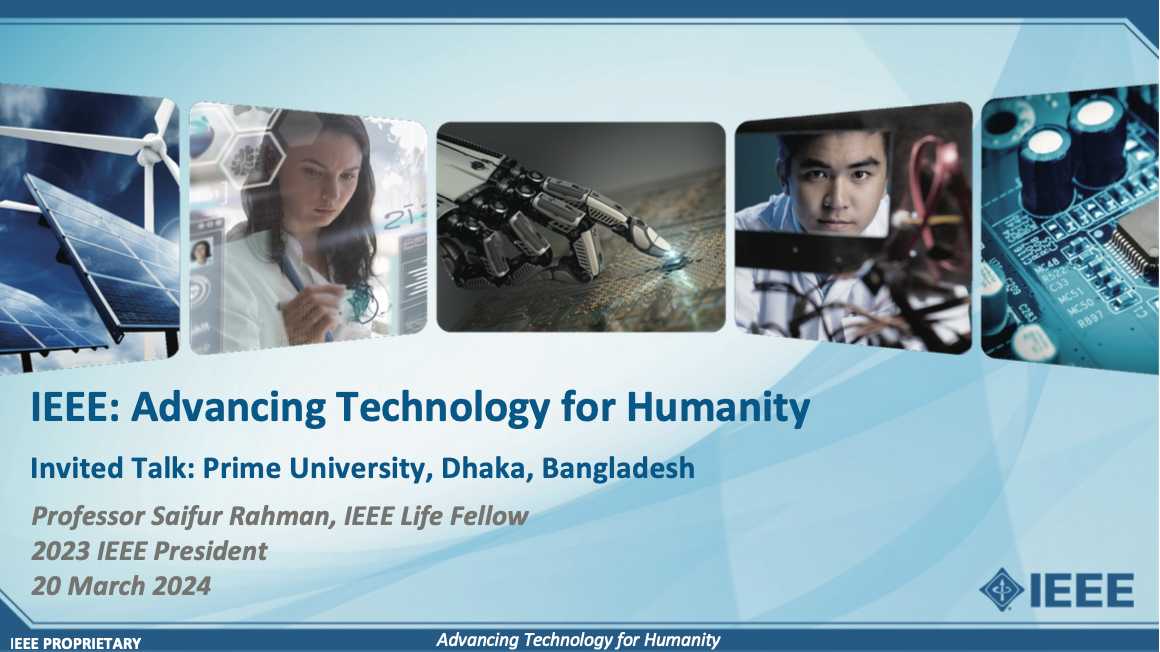Date
Recent and Upcoming Presentations and Webinars
Webinar/Presentation Slides
15 November 2025
COP30, Belem, Brazil
Role of Cross-border Power Transfer in Energy Transition
Invited Speech, Strengthening Capacity Building for Energy Transition
Hosted by GEIDCO, UNFCCC and PCCB
This paper highlights how cross-border power transfer can help promote energy transition. While the traditional concept of using renewable energy to displace fossil fuel-based energy helps with the target of promoting carbon-free electricity, there is another alternative – cross-border power transfer – which can help with achieving the same goal. Examples are given from North America (Canada-US), Europe (France-Portugal-Spain), Africa (Ethiopia-Kenya) and Asia (Laos-Thailand-Malaysia-Singapore) where cross-border power transfers are taking place avoiding the use of fossil fuel-based electricity to meet the national electricity needs of the recipient countries. The issue of capacity building to facilitate technology deployment for cross-border power transfer is also discussed
Saifur Rahman, PhD
Joseph Loring Professor of Electrical Engineering and Director
Virginia Tech Advanced Research Institute, USA
IEEE President 2023
06 November 2025
IEEEE Online
Promoting Technology to Achieve a Sustainable Climate
Keynote Speech, OFCCT, IEEE Online
This lecture explains what carbonization is, addresses its causes and impacts. It then offers technological solutions to reduce CO2 emissions from the electric power sector which is responsible over 30% of global Carbon emissions. In order to address the reduction of carbon emissions from the electric power sector, a collaborative approach between the industrialized nation states and emerging economies is necessary. This will involve a portfolio of solutions with low-carbon generation from wind, solar, hydro and nuclear, storage, cross-border power transfer and advanced technology focusing on energy efficiency. This talk also discusses the IEEE Technologies for a Sustainable Climate program and related activities.
Saifur Rahman, PhD
Joseph Loring Professor of Electrical Engineering and Director
Virginia Tech Advanced Research Institute, USA
IEEE President 2023
06 November 2025
Faridabad, India
AI Data Center Design and Operation
Invited Talk, Taylor & Francis Conference, Faridabad, India
Data Centers around the world are heavy users of electricity and water. Industry and governments worldwide are increasingly conscious that DCs cannot continue to grow in an unsustainable manner, without managing their resource footprint. The presentation will use example Data Centers to highlight the sustainability issue.
Saifur Rahman, PhD
Joseph Loring Professor of Electrical Engineering and Director
Virginia Tech Advanced Research Institute, USA
IEEE President 2023
30 October 2025
Jamshedpur, India
Advanced Power Technologies in Optimal Managment of Smart Buildings, Smart Cities & Smart Grids
Invited Talk, ICE2CPT 2025, NIT, Jamshedpur, India
This lecture explains the Smart Grid ecosystem comprising of the smart grid, smart city, smart campus and smart building. The ecosystem features bi-directional flows of energy, complex interconnected infrastructures, automation, sensors and smart devices.
Saifur Rahman, PhD
Joseph Loring Professor of Electrical Engineering and Director
Virginia Tech Advanced Research Institute, USA
IEEE President 2023
28 October 2025
Saudi Arabia
Technology’s Role in Decarbonization in the Electric Power Sector
Keynote Speech, SENZE’25, Hail, KSA
This lecture explains what carbonization is, addresses its causes and impacts. It then offers technological solutions to reduce CO2 emissions from the electric power sector which is responsible over 30% of global Carbon emissions. In order to address the reduction of carbon emissions from the electric power sector, a collaborative approach between the industrialized nation states and emerging economies is necessary. This will involve a portfolio of solutions with low-carbon generation from wind, solar, hydro and nuclear, storage, cross-border power transfer and advanced technology focusing on energy efficiency. This talk also discusses the IEEE Climate Change program and related activities.
26 September 2025
Washington DC
Connecting the Unconnected: Solving the Last-Mile Challenge
Invited Talk, IEEE Connecting the Unconnected (CTU) Summit
Globally there are numerous programs undertaken by UN agencies, national governments and NGOs to give last mile digital access to dispersed communities. The Green Digital Action Program run by the International Telecommunication Union is an example of such activities. The available technologies can be classified as follows.
Wireless Technologies
- Fixed Wireless Access (FWA)
- Mobile Networks (4G, 5G)
- Wi-Fi Mesh Networks
- TV White Space (TVWS)
Satellite Internet
- GEO Satellites (e.g., Viasat, HughesNet)
- LEO Satellites (e.g., Starlink)
Hybrid and Emerging Technologies
- Community Networks
- Balloons/Drones (e.g., Project Loon, HAPS)
- Li-Fi (Light Fidelity)
Choosing the Right Technology Depends On:
- Geography: Terrain, population density.
- Budget: Capital and operational costs.
- Regulation: Spectrum access, permits.
- Speed/Latency Needs: User expectations and application demands.
Saifur Rahman, PhD
Joseph Loring Professor of Electrical Engineering and Director
Virginia Tech Advanced Research Institute, USA
IEEE President 2023
18 September 2025
CIGRE
Technology’s Role in Achieving Climate Sustainability
Invited Talk, CIGRE NGN Webinar
This lecture explains what carbonization is, addresses its causes and impacts. It then offers technological solutions to reduce CO2 emissions from the electric power sector which is responsible over 30% of global Carbon emissions. In order to address the reduction of carbon emissions from the electric power sector, a collaborative approach between the industrialized nation states and emerging economies is necessary. This will involve a portfolio of solutions with low-carbon generation from wind, solar, hydro and nuclear, storage, cross-border power transfer and advanced technology focusing on energy efficiency. This talk also discusses the IEEE Climate Change program and related activities.
Saifur Rahman, PhD
Joseph Loring Professor of Electrical Engineering and Director
Virginia Tech Advanced Research Institute, USA
IEEE President 2023
10 September 2025
Beijing, China
Role of Technology in Achieving Climate Resilience
Invited Talk, Tsinghua University Colloquium
This lecture explains what carbonization is, addresses its causes and impacts. It then offers technological solutions to reduce CO2 emissions from the electric power sector which is responsible over 30% of global Carbon emissions. In order to address the reduction of carbon emissions from the electric power sector, a collaborative approach between the industrialized nation states and emerging economies is necessary. This will involve a portfolio of solutions with low-carbon generation from wind, solar, hydro and nuclear, storage, cross-border power transfer and advanced technology focusing on energy efficiency. This talk also discusses the IEEE Climate Change program and related activities.
Saifur Rahman, PhD
Joseph Loring Professor of Electrical Engineering and Director
Virginia Tech Advanced Research Institute, USA
IEEE President 2023
09 September 2025
Beijing, China
A Brief Overview of Energy Storage Systems and their Application-Based Classification
Keynote Speech, GEI Conference on Pumped Storage and New Energy Storage Forum, Beijing China.
Pumped hydro storage (PHS) is one of the most widely used mechanical energy storage systems. PHS accounts for over 94% of the world’s installed energy storage capacity. This stores electrical energy by using the potential energy of water. During low-demand hours, the water is pumped and stored in an upper reservoir. When the demand is high, this stored water is released and converted into electrical power with good efficiency (around 70 to 85%).
Major Energy Storage System technologies are:
• Pumped Hydro Storage (PHS) Systems
• Compressed Air Energy Storage Systems (CAES)
• Flywheel Energy Storage Systems
• Battery Energy Storage Systems (BESS)
Energy storage is critical in power systems for several reasons:
• Balancing Supply and Demand
• Mitigating Intermittency of Renewable Energy Sources
• Peak Load Management
• Grid Stability and Reliability
• Energy Arbitrage
• Resilience and Backup Power
• Transmission and Distribution Support
• Microgrids and Off-Grid Applications
• Energy Efficiency
• Ancillary Services (frequency control, spinning reserves, and energy trading)
• Decarbonization
Saifur Rahman, PhD
Joseph Loring Professor of Electrical Engineering and Director
Virginia Tech Advanced Research Institute, USA
2023 IEEE President & CEO
29 August 2025
Bangladesh
IEEE Bangladesh Section Vitality Enhancement Summit 2025
Chief Guest, IEEE Bangladesh Section
An inspirational speech given by Professor Saifur Rahman at the IEEE Bangladesh Section Vitality Enhancement Summit in Dhaka on 29 Aug 2025. It was attended by over 150 IEEE Young Professionals and professors from over 15 universities in Bangladesh.
Saifur Rahman, PhD
Joseph Loring Professor of Electrical Engineering and Director
Virginia Tech Advanced Research Institute, USA
IEEE President 2023
16-18 May 2025
Changsha, China
Opportunities for Carbon Emissions Reduction in the Electric Power Sector
Keynote Speech, IEEE CIEEC 2025, Changsha China
This lecture explains what carbonization is, addresses its causes and impacts. It then offers technological solutions to reduce CO2 emissions from the electric power sector which is responsible over 30% of global Carbon emissions. In order to address the reduction of carbon emissions from the electric power sector, a collaborative approach between the industrialized nation states and emerging economies is necessary. This will involve a portfolio of solutions with low-carbon generation from wind, solar, hydro and nuclear, storage, cross-border power transfer and advanced technology focusing on energy efficiency. This talk also discusses the IEEE Climate Change program and related activities.
Saifur Rahman, PhD
Joseph Loring Professor of Electrical Engineering and Director
Virginia Tech Advanced Research Institute, USA
IEEE President 2023
08 May 2025
GWU ECE Dept.
Role of Technology in Achieving Climate Resilience
Invited Talk, GWU ECE Department Colloquium
This lecture explains what carbonization is, addresses its causes and impacts. It then offers technological solutions to reduce CO2 emissions from the electric power sector which is responsible over 30% of global Carbon emissions. In order to address the reduction of carbon emissions from the electric power sector, a collaborative approach between the industrialized nation states and emerging economies is necessary. This will involve a portfolio of solutions with low-carbon generation from wind, solar, hydro and nuclear, storage, cross-border power transfer and advanced technology focusing on energy efficiency. This talk also discusses the IEEE Climate Change program and related activities.
Saifur Rahman, PhD
Joseph Loring Professor of Electrical Engineering and Director
Virginia Tech Advanced Research Institute, USA
IEEE President 2023
16 April 2025
Beijing, China
A Technology Roadmap to Achieve Climate Resilience
Keynote Speech, 10th ACPEE, Beijing, China
This lecture explains what carbonization is, addresses its causes and impacts. It then offers technological solutions to reduce CO2 emissions from the electric power sector which is responsible over 30% of global Carbon emissions. In order to address the reduction of carbon emissions from the electric power sector, a collaborative approach between the industrialized nation states and emerging economies is necessary. This will involve a portfolio of solutions with low-carbon generation from wind, solar, hydro and nuclear, storage, cross-border power transfer and advanced technology focusing on energy efficiency. This talk also discusses the IEEE Climate Change program and related activities.
Saifur Rahman, PhD
Joseph Loring Professor of Electrical Engineering and Director
Virginia Tech Advanced Research Institute, USA
IEEE President 2023
10 April 2025
Beijing, China
The Role of Smart Grid in a Resilient Power Grid
Invited Talk Power Grid Seminar, Beijing, China
With the focus on environmental sustainability and energy security, power system planners are looking at renewable energy as supplements and alternatives. But such generation sources have their own challenges – primarily intermittency. It is expected that the smart grid – due to its inherent communication, sensing and control capabilities – will have the ability to manage the load, storage and generation assets (including renewables) in the power grid to enable a large-scale integration of distributed generation. In a smart grid, information about the state of the grid and its components can be exchanged quickly over long distances and complex networks. It will therefore be possible to have the integration of sustainable energy sources, such as wind, solar, off-shore electricity, etc. for smoother system operation. But in order for this to be possible, the electric utility will have to evolve, and change their ways of operation to become an intelligent provider of these services. This lecture introduces the operational characteristics of renewable energy sources, and various aspects of the smart grid – technology, standards and regulations.
Saifur Rahman, PhD
Joseph Loring Professor of Electrical Engineering and Director
Virginia Tech Advanced Research Institute, USA
IEEE President 2023
05 April 2025
Stony Brook, NY
IEEE’s Role in Achieving Climate Resilience
Invited Talk, IEEE R1-R2 Student Conference, Stony Brook University, NY
This lecture explains what carbonization is, addresses its causes and impacts. It then offers technological solutions to reduce CO2 emissions from the electric power sector which is responsible over 30% of global Carbon emissions. In order to address the reduction of carbon emissions from the electric power sector, a collaborative approach between the industrialized nation states and emerging economies is necessary. This will involve a portfolio of solutions with low-carbon generation from wind, solar, hydro and nuclear, storage, cross-border power transfer and advanced technology focusing on energy efficiency. This talk also discusses the IEEE Climate Change program and related activities.
Saifur Rahman, PhD
Joseph Loring Professor of Electrical Engineering and Director
Virginia Tech Advanced Research Institute, USA
IEEE President 2023
19 March 2025
Long Beach, CA
Pathways for Climate Sustainability with the Accelerated Deployment of Electric Vehicles
Presented at the 22nd Annual Conference on Systems Engineering Research (CSER2025). Long Beach, CA.
Global warming caused by greenhouse gas releases (GHG) into the atmosphere is now considered an existential threat to society and biodiversity. To limit global warming, the United States and many other countries have submitted a Nationally Determined Contribution (NDC) for the reduction of their net GHG emissions by 2030. The transportation sector, responsible for over a third of GHG emissions in the US, is a major target for reducing carbon intensity.
The analysis presented in this paper highlights the challenges and opportunities to de-carbonize the economy through accelerated and large-scale deployment of zero-emission Electric Vehicles (EVs) in the next 10-25 years. The fact that an EV has no tailpipe emissions does not mean that the use of an EV is emission-free. The question needs to be asked – where is the electricity to charge the EV coming from? If an EV is charged by electricity from a coal-fired power plant, then the EV is not emission-free. This paper reports on the number of EVs based on EV registration data, and electricity generation mix in all 50 US states and the District of Columbia. A state’s carbon reduction credential from the transportation sector cannot be judged alone by the number of EVs on the road, we need to also know the carbon intensity from electricity generation in the state. The discussion in this paper highlights how states can improve their carbon intensity credentials not just by bringing more EVs onto the roads, but also by bringing low or no-carbon electricity into their electricity generation mix.
Keywords: Decarbonization; Electric Vehicle; GHG Emissions; Electricity Generation Mix
Saifur Rahman, PhD
Joseph Loring Professor of Electrical Engineering and Director
Virginia Tech Advanced Research Institute, USA
IEEE President 2023
05 February 2025
Arlington, Virginia
Technology’s Role in Achieving and Resilient Climate
Invited Talk, Virginia Tech ECE Department Colloquium, Arlington, VA
This lecture explains what carbonization is, addresses its causes and impacts. It then offers technological solutions to reduce CO2 emissions from the electric power sector which is responsible over 30% of global Carbon emissions. In order to address the reduction of carbon emissions from the electric power sector, a collaborative approach between the industrialized nation states and emerging economies is necessary. This will involve a portfolio of solutions with low-carbon generation from wind, solar, hydro and nuclear, storage, cross-border power transfer and advanced technology focusing on energy efficiency. This talk also discusses the IEEE Climate Change program and related activities.
Saifur Rahman, PhD
Joseph Loring Professor of Electrical Engineering and Director
Virginia Tech Advanced Research Institute, USA
IEEE President 2023
15 January 2025
Jamshedpur, India
Smart Grid and the Integration of Renewables
Online Workshop on Distributed Energy Resources, NIT Jamshedpur, India
With the focus on environmental sustainability and energy security, power system planners are looking at renewable energy as supplements and alternatives. But such generation sources have their own challenges – primarily intermittency. It is expected that the smart grid – due to its inherent communication, sensing and control capabilities – will have the ability to manage the load, storage and generation assets (including renewables) in the power grid to enable a large-scale integration of distributed generation.
In a smart grid, information about the state of the grid and its components can be exchanged quickly over long distances and complex networks. It will therefore be possible to have the integration of sustainable energy sources, such as wind, solar, off-shore electricity, etc. for smoother system operation. But in order for this to be possible, the electric utility will have to evolve, and change their ways of operation to become an intelligent provider of these services. This lecture introduces the operational characteristics of renewable energy sources, and various aspects of the smart grid – technology, standards and regulations. It also addresses the interplay among distributed generation, storage and conventional generation to provide an efficient operational strategy in the context of the smart grid.
Saifur Rahman, PhD
Joseph Loring Professor of Electrical Engineering and Director
Virginia Tech Advanced Research Institute, USA
IEEE President 2023
11 November 2024
Baku, Azerbajian
IEEE Climate Change: Focusing on Technology for Climate Resilience
WFEO Side Event at COP29, Baku, Azerbaijan
In the face of accelerating climate change impacts, resilience is critical to helping safeguard communities and ecosystems across the globe. This intervention will focus on the role of technology in enhancing climate resilience, focusing on the contributions led by IEEE. This includes work on a framework and a roadmap for advancing climate resilience through targeted technological innovation, including the identification and implementation of technologies and technical standards that align with climate policies, and developing practical tools for deploying tech related to climate goals. It will also address collaboration as a central element in developing tech solutions such as early warning systems and data-driven decisions to boost climate resilience. And it will discuss why and how active partnerships among government, industry, academia and international bodies to coordinate efforts toward resilience can help fuel widespread adoption of climate solutions.
Saifur Rahman, PhD
Joseph Loring Professor of Electrical Engineering and Director
Virginia Tech Advanced Research Institute, USA
IEEE President 2023
09 November 2024
Dhaka, Bangladesh
A Clean-Tech Solution for a Resilient Climate
Invited Talk, IEEE Symposium on Emerging Technologies for a Sustainable Future, Dhaka, Bangladesh
This lecture explains what carbonization is, addresses its causes and impacts. It then offers technological solutions to reduce CO2 emissions from the electric power sector which is responsible over 30% of global Carbon emissions. In order to address the reduction of carbon emissions from the electric power sector, a collaborative approach between the industrialized nation states and emerging economies is necessary. This will involve a portfolio of solutions with low-carbon generation from wind, solar, hydro and nuclear, storage, cross-border power transfer and advanced technology focusing on energy efficiency. This talk also discusses the IEEE Climate Change program and related activities.
Saifur Rahman, PhD
Joseph Loring Professor of Electrical Engineering and Director
Virginia Tech Advanced Research Institute, USA
IEEE President 2023
07 November 2024
Dhaka, Bangladesh
Satyendranath Bose: Promoting His Legacy for the Future
Centennial Celebration of Bose Einstein Statistics: Legacy of Dhaka
Dhaka University, Bangladesh
Satyendranath Bose was one of the luminaries of Indian science in the early to mid-twentieth century India. All of them were based in Kolkata with the exception of Prof. Satyendranath Bose who was a professor of physics at Dhaka University from 1921 to 1945. He was born in Kolkata in 1898. Bose’s academic journey began at the Hindu School in Kolkata. He continued his education at the Presidency College, Kolkata, where he pursued his undergraduate studies in mathematics.
S. N. Bose received his master’s degree in mixed mathematics from the University of Calcutta in 1915, standing first in the examination. He taught at the Calcutta Science College from 1915 to 1920, then moved to the University of Dhaka in 1921 as a Reader in the Department of Physics. S.N. Bose’s work at Dhaka University established him as one of the key figures in Indian science, laying the foundation for future advancements in quantum physics.
While at Dhaka University, Bose wrote his groundbreaking paper titled “Planck’s Law and the Hypothesis of Light Quanta,” in which he derived Planck’s law for blackbody radiation without using classical physics. Instead, he used a novel statistical method to treat photons (light quanta) as indistinguishable particles. This statistical formulation is known as Bose-Einstein statistics. This statistical theory described the behavior of certain types of particles, later called “bosons,” named after him. There have been four Nobel Prizes in Physics awarded for work related to bosons starting from 1979 till 2022.
He returned to Kolkata in 1945 and joined the University of Calcutta as a professor and
continued teaching and research there till 1956. In 1958 he became a Fellow of the UK Royal Society. He passed away in 1974.
Saifur Rahman, PhD
Joseph Loring Professor of Electrical Engineering and Director
Virginia Tech Advanced Research Institute, USA
IEEE President and CEO 2023
21 September 2024
India
Smart Grid and the Evolving Power Grid
Keynote Speech, NKCon 2024, India
With the focus on environmental sustainability and energy security, power system planners are looking at renewable energy as supplements and alternatives. But such generation sources have their own challenges – primarily intermittency. It is expected that the smart grid – due to its inherent communication, sensing and control capabilities – will have the ability to manage the load, storage and generation assets (including renewables) in the power grid to enable a large-scale integration of distributed generation.
In a smart grid, information about the state of the grid and its components can be exchanged quickly over long distances and complex networks. It will therefore be possible to have the integration of sustainable energy sources, such as wind, solar, off-shore electricity, etc. for smoother system operation. But in order for this to be possible, the electric utility will have to evolve, and change their ways of operation to become an intelligent provider of these services. This lecture introduces the operational characteristics of renewable energy sources, and various aspects of the smart grid technology.
Saifur Rahman, PhD
Joseph Loring Professor of Electrical Engineering and Director
Virginia Tech Advanced Research Institute, USA
IEEE President and CEO 2023
13 September 2024
Rajshahi, Bangladesh
A low-carbon electricity paradigm to help with decarbonization
Keynote Speech, IEEE PEEIACON, RUET
This lecture explains what carbonization is, addresses its causes and impacts. It then offers technological solutions to reduce CO2 emissions from the electric power sector which is responsible over 30% of global Carbon emissions. In order to address the reduction of carbon emissions from the electric power sector, a collaborative approach between the industrialized nation states and emerging economies is necessary. This will involve a portfolio of solutions with low-carbon generation from wind, solar, hydro and nuclear, storage, cross-border power transfer and advanced technology focusing on energy efficiency. This talk also discusses the IEEE Climate Change program and related activities.
Saifur Rahman, PhD
Joseph Loring Professor of Electrical Engineering and Director
Virginia Tech Advanced Research Institute, USA
IEEE President and CEO 2023
22 July 2024
Bengaluru, India
Sustainable Space
Invited Talk, IEEE Space Aerospace and Defense Conference
Sustainable space refers to the concept of enabling human activities in space while protecting and preserving a neutral space environment for future generations. The focus needs to be on the following. Developing space technologies and practices that minimize the negative impact on space ecosystems. Designing spacecraft and habitats with minimal environmental impact. Embracing sustainable practices in space exploration and utilization. Ensuring the long-term viability of human activities beyond earth while also protecting the pristine space environment. The following key operating attributes can help to achieve this goal.
1. Mitigation of Space Debris In summary, space sustainability is a complex and multifaceted challenge that requires a coordinated effort across technological, regulatory, and societal domains. By integrating these approaches, the international community can work towards a future where outer space remains a viable and neutral environment for exploration and utilization. Saifur Rahman, PhD
2. Sustainable Satellite Operations
3. Regulatory and Policy Measures
4. Space Traffic Management
5. Environmental Protection of Celestial Bodies
6. Innovative Technology Development
7. International Collaboration and Governance
8. Public Awareness and Education
9. Economic and Market Incentives
Joseph Loring Professor of Electrical Engineering and Director
Virginia Tech Advanced Research Institute, USA
IEEE President and CEO 2023
19 July 2024
Kolkata, India
Opportunities for Low-carbon Electricity for Climate Change Mitigation
Distinguished Lecture, JC Bose Science Heritage Museum
This lecture explains what carbonization is, addresses its causes and impacts. It then offers technological solutions to reduce CO2 emissions from the electric power sector which is responsible over 30% of global Carbon emissions. In order to address the reduction of carbon emissions from the electric power sector, a collaborative approach between the industrialized nation states and emerging economies is necessary. This will involve a portfolio of solutions with low-carbon generation from wind, solar, hydro and nuclear, storage, cross-border power transfer and advanced technology focusing on energy efficiency. This talk also discusses the IEEE Climate Change program and related activities.
Saifur Rahman, PhD
Joseph Loring Professor of Electrical Engineering and Director
Virginia Tech Advanced Research Institute, USA
IEEE President and CEO 2023
12 July 2024
Davos, Switzerland
Practical and Acceptable Clean-Tech Solutions for a Resilient Climate
Invited Talk, iCANX, Davos, Switzerland
While industrialized nations are slowly moving away from fossil-fuel based electricity, emerging economies are still heavily reliant on fossil fuels which are the most readily available electricity generation sources for them. A nuanced approach is proposed which will see industrialized nation states collaborating with emerging economies to deploy a portfolio of solutions with low-carbon generation, storage and demand side management with advanced technology focusing on energy efficiency and nuclear power.
Saifur Rahman, PhD
Joseph Loring Professor of Electrical Engineering and Director
Virginia Tech Advanced Research Institute, USA
IEEE President and CEO 2023
08 June 2024
IEEE YP Seminar
Role of Renewables in Climate Change
Invited Talk, IEEE Education Society YP Seminar
This lecture explains what carbonization is, addresses its causes and impacts. It then offers technological solutions to reduce CO2 emissions from the electric power sector which is responsible over 30% of global Carbon emissions. In order to address the reduction of carbon emissions from the electric power sector, a collaborative approach between the industrialized nation states and emerging economies is necessary. This will involve a portfolio of solutions with low-carbon generation from wind, solar, hydro and nuclear, storage, cross-border power transfer and advanced technology focusing on energy efficiency. This talk also discusses the IEEE Climate Change program and related activities.
Saifur Rahman, PhD
Joseph Loring Professor of Electrical Engineering and Director
Virginia Tech Advanced Research Institute, USA
IEEE President 2023
03 June 2024
Delhi, India
Promoting Technology for a Sustainable Climate
Invited Talk, IEEE Sensors Council and AESS
Delhi Section Chapters
This lecture explains what carbonization is, addresses its causes and impacts. It then offers technological solutions to reduce CO2 emissions from the electric power sector which is responsible over 30% of global Carbon emissions. In order to address the reduction of carbon emissions from the electric power sector, a collaborative approach between the industrialized nation states and emerging economies is necessary. This will involve a portfolio of solutions with low-carbon generation from wind, solar, hydro and nuclear, storage, cross-border power transfer and advanced technology focusing on energy efficiency. This talk also discusses the IEEE Climate Change program and related activities.
Saifur Rahman, PhD
Joseph Loring Professor of Electrical Engineering and Director
Virginia Tech Advanced Research Institute, USA
IEEE President 2023
23 May 2024
Al Khobar, Saudi Arabia
Smart Grid as a Facilitator to Integrate Renewables into the Power Grid
Invited Talk, IEEE Saudi Arabia Section, Al Khobar, Saudi Arabia
With the focus on environmental sustainability and energy security, power system planners are looking at renewable energy as supplements and alternatives. But such generation sources have their own challenges – primarily intermittency. It is expected that the smart grid – due to its inherent communication, sensing and control capabilities – will have the ability to manage the load, storage and generation assets (including renewables) in the power grid to enable a large-scale integration of distributed generation.
In a smart grid, information about the state of the grid and its components can be exchanged quickly over long distances and complex networks. It will therefore be possible to have the integration of sustainable energy sources, such as wind, solar, off-shore electricity, etc. for smoother system operation. But in order for this to be possible, the electric utility will have to evolve, and change their ways of operation to become an intelligent provider of these services. This lecture introduces the operational characteristics of renewable energy sources, and various aspects of the smart grid – technology, standards and regulations. It also addresses the role policymakers and regulators need to play by making utilities be proactive in the Integration of Renewables into the Power Grid.
Saifur Rahman, PhD
Joseph Loring Professor of Electrical Engineering and Director
Virginia Tech Advanced Research Institute, USA
IEEE President 2023
16 May 2024
Amsterdam
Technology Roadmap for Energy Transition Through New Energy and Storage
Invited Talk, European Energy Transition Theme Forum, European Association for Energy Storage Trade
This lecture explains what carbonization is, and addresses its causes and impacts. It addresses new energy and storage solutions for climate sustainability. It promotes a collaborative approach between the industrialized nation states and emerging economies to address the reduction of carbon emissions from the electric power, transportation and industry sectors. It addresses the role of carbon-free sources (solar, wind, hydro and nuclear) to achieve net-zero economies. It also addresses the role of storage to facilitate the integration of renewables into the grid and helping with energy-independence for off-grid communities.
Saifur Rahman, PhD
Joseph Loring Professor of Electrical Engineering and Director
Virginia Tech Advanced Research Institute, USA
IEEE President 2023
04 May 2024
Dhaka, Bangladesh
Technology Solutions for Climate Sustainability
Keynote Speech, Technical Experts’ Forum IEEE Bangladesh Section
This lecture explains what carbonization is, addresses its causes and impacts. It then offers technological solutions to reduce CO2 emissions from the electric power sector which is responsible over 30% of global Carbon emissions. In order to address the reduction of carbon emissions from the electric power sector, a collaborative approach between the industrialized nation states and emerging economies is necessary. This will involve a portfolio of solutions with low-carbon generation from wind, solar, hydro and nuclear, storage, cross-border power transfer and advanced technology focusing on energy efficiency. This talk also discusses the IEEE Climate Change program and related activities.
Saifur Rahman, PhD
Joseph Loring Professor of Electrical Engineering and Director
Virginia Tech Advanced Research Institute, USA
IEEE President 2023
02-04 May 2024
Dhaka, Bangladesh
Role of ICT in Optimal Management of Smart Buildings, Smart Cities and Smart Grids
Keynote Speech, 6th IEEE International Conference on EE and ICT MIST, Dhaka, Bangladesh
Advanced information and communication technology (ICT) applications in commercial buildings, schools, libraries, shopping centers, etc. offer low-cost but highly effective monitoring and control opportunities. Sensors deployed in key locations in buildings can monitor the building environment in real-time, collect information for intelligent decision making, and facilitate various services. Such large-scale deployment of sensors and controllers makes the building energy efficient.
A smart city relies on widely distributed smart devices to monitor the urban environment in real-time, collects information for intelligent decision making, and facilitates various services to improve the quality of urban living. Smart cities address urban challenges such as pollution, energy efficiency, security, parking, traffic, transportation, and others by utilizing ICT and communications interconnectivity via the Internet. The proliferation of personal mobile devices and development of online social networks make participatory sensing viable at a large scale but can introduce many open problems at the same time.
A smart grid – due to its inherent communication, sensing and control capabilities – has the capability to manage the electrical load (residential, commercial and industrial), storage and generation assets (including renewables) in the power grid to enable a large-scale integration of distributed generation, and thus helps with decarbonization. In a smart grid, information about the state of the grid and its components can be exchanged quickly over long distances and complex networks. But, in order for this to be possible, the electric utility will have to evolve, and change their ways of operation to become an intelligent provider of these services.
Saifur Rahman, PhD
Joseph Loring Professor of Electrical Engineering and Director
Virginia Tech Advanced Research Institute, USA
IEEE President 2023
22 April 2024
Al Khobar, Saudi Arabia
Role of the Smart Grid in Facilitating the Integration of Renewables into the Power Grid
Keynote Speech, ICREGA’24, Al Khobar, Saudi Arabia
With the focus on environmental sustainability and energy security, power system planners are looking at renewable energy as supplements and alternatives. But such generation sources have their own challenges – primarily intermittency. It is expected that the smart grid – due to its inherent communication, sensing and control capabilities – will have the ability to manage the load, storage and generation assets (including renewables) in the power grid to enable a large-scale integration of distributed generation.
In a smart grid, information about the state of the grid and its components can be exchanged quickly over long distances and complex networks. It will therefore be possible to have the integration of sustainable energy sources, such as wind, solar, off-shore electricity, etc. for smoother system operation. But in order for this to be possible, the electric utility will have to evolve, and change their ways of operation to become an intelligent provider of these services. This lecture introduces the operational characteristics of renewable energy sources, and various aspects of the smart grid – technology, standards and regulations. It also addresses the role policymakers and regulators need to play by making utilities be proactive in the Integration of Renewables into the Power Grid.
Saifur Rahman, PhD
Joseph Loring Professor of Electrical Engineering and Director
Virginia Tech Advanced Research Institute, USA
IEEE President 2023
20 March 2024
Dhaka, Bangladesh
IEEE: Advancing Technology for Humanity
Invited Talk, Prime University, Dhaka, Bangladesh
This presentation highlights IEEE as a mission-based organization and the five themes under which the institute operates. These are: Members, Technology, Education, Standards and Climate Change. It introduces IEEE’s Climate Change Program and gives examples of how the organization is reaching out to a global audience of technologists, policy makers, academics and students who promote clean-tech solutions for a sustainable climate.
Click here for 2023 Webinars
Click here for 2022 Webinars
Click here for 2021 Webinars
Click here for Previous Webinars

